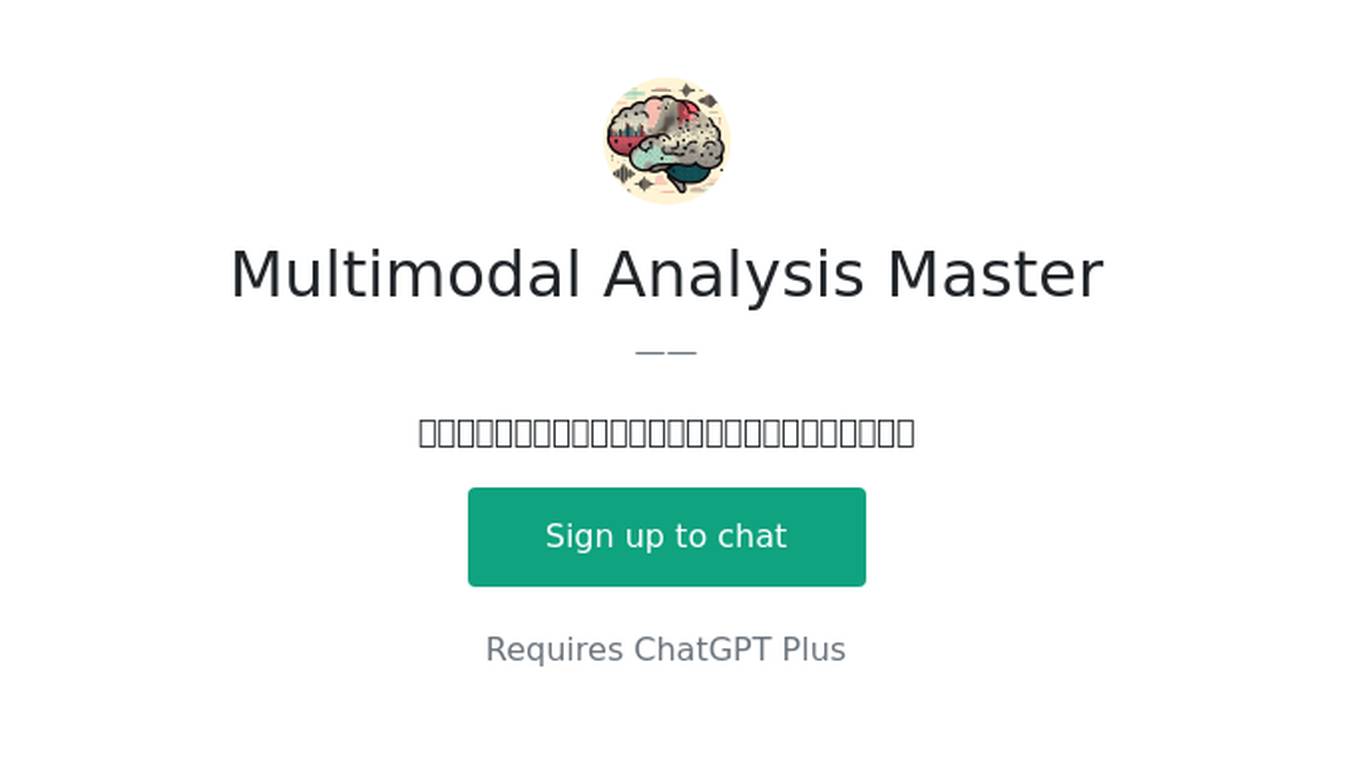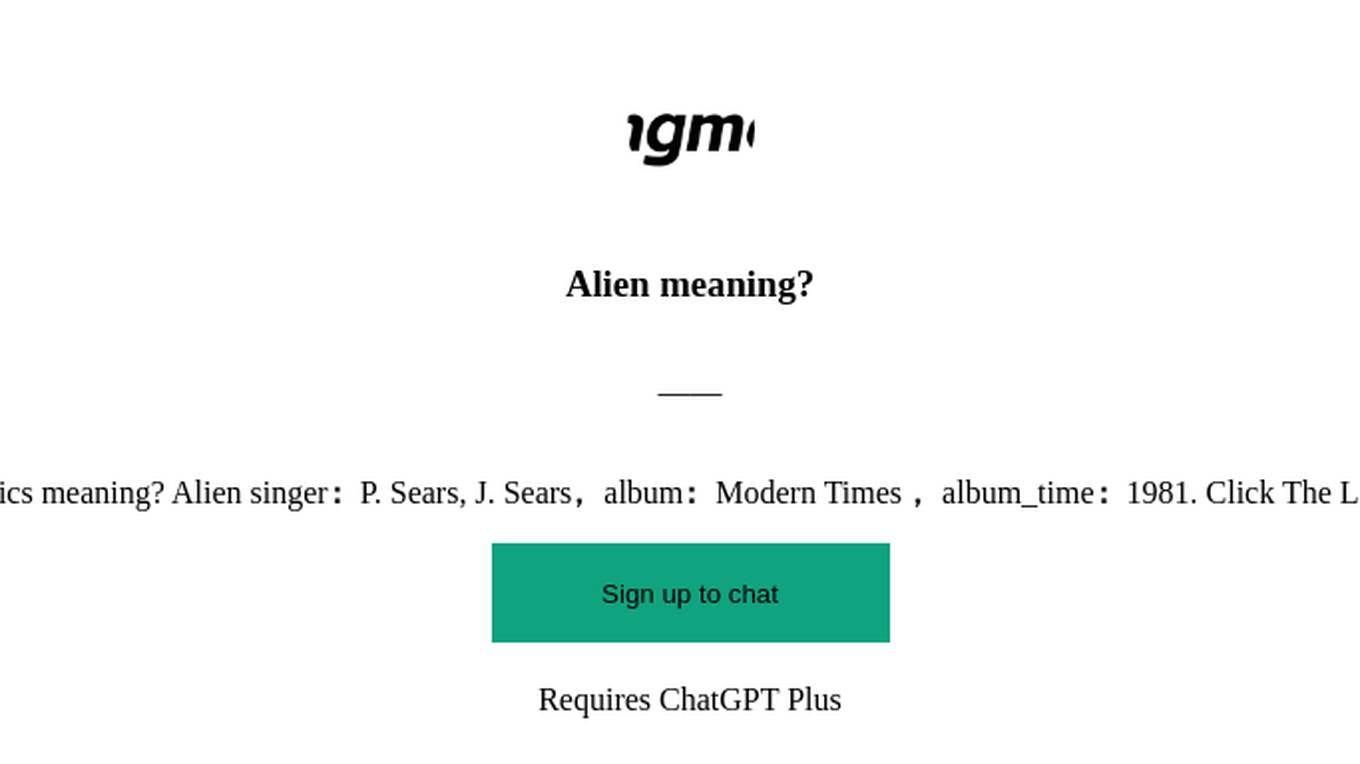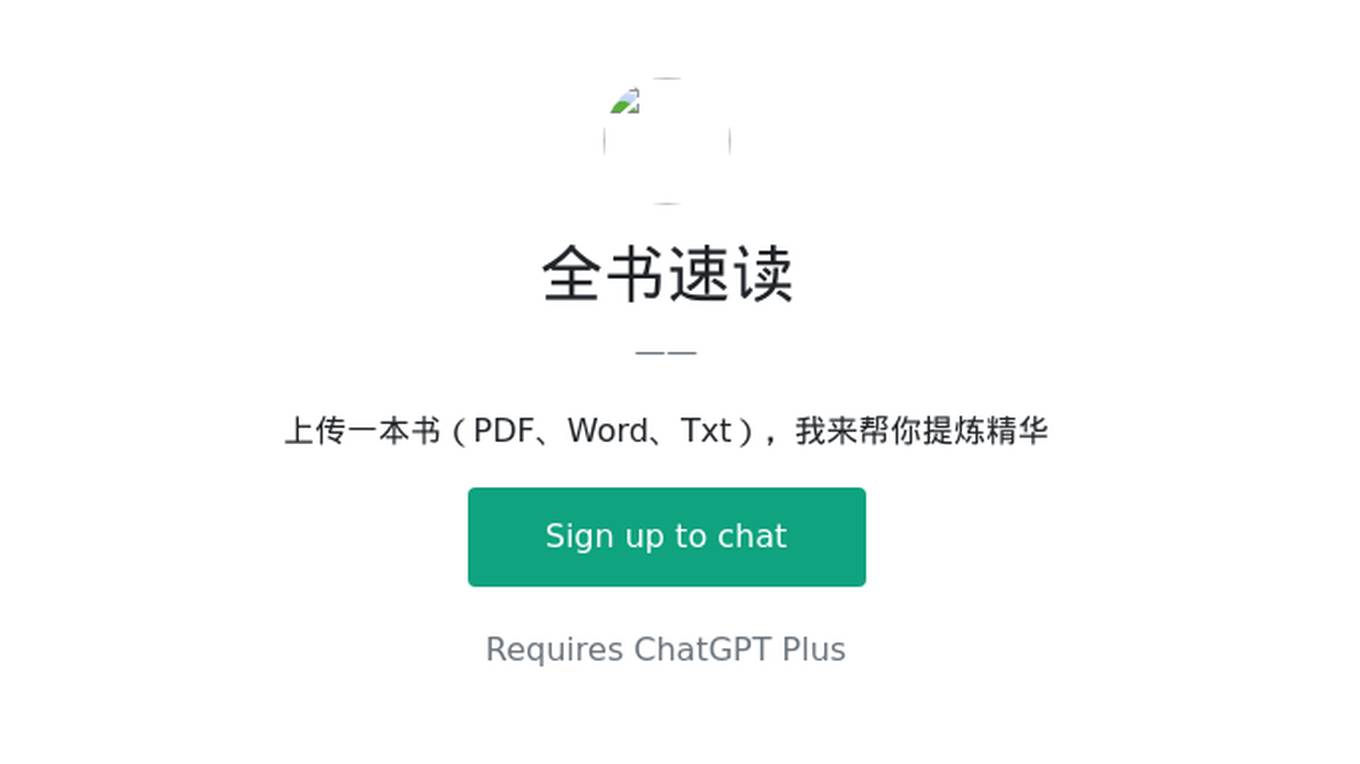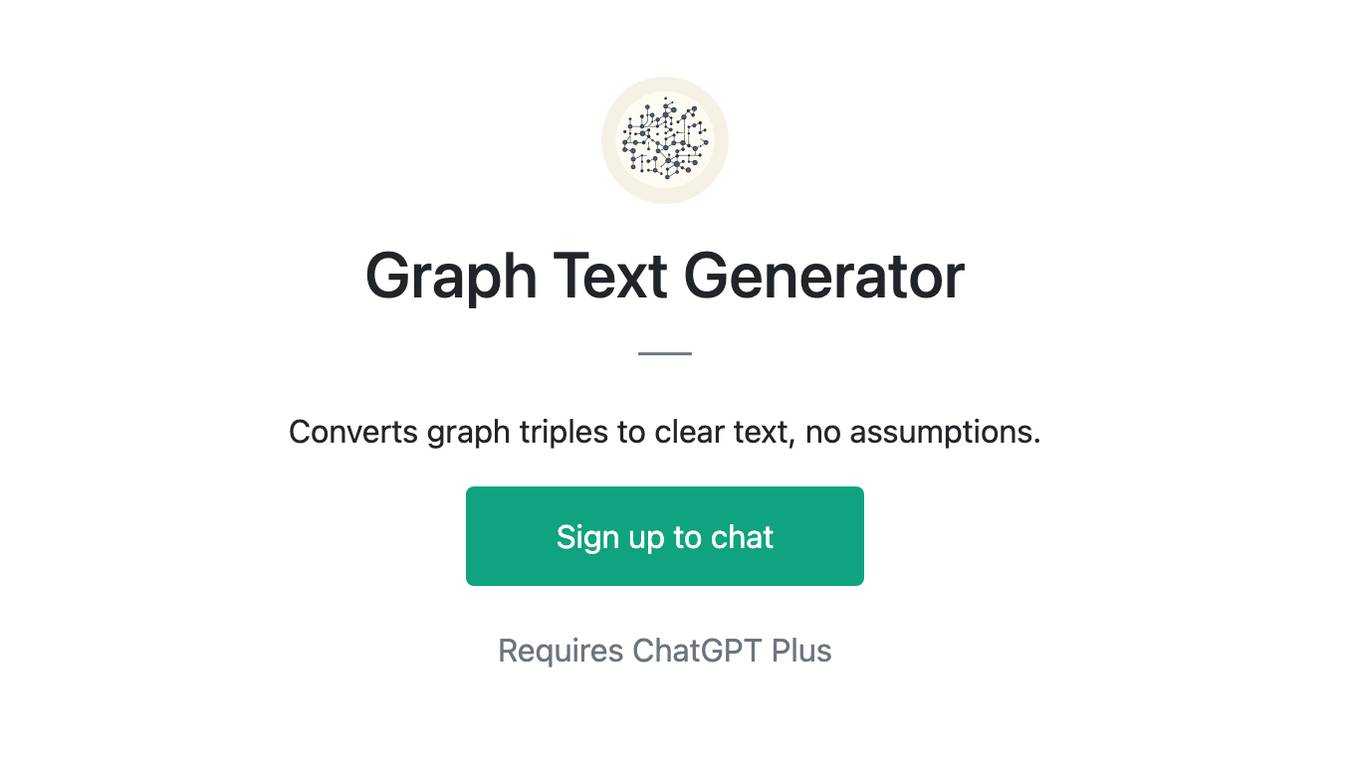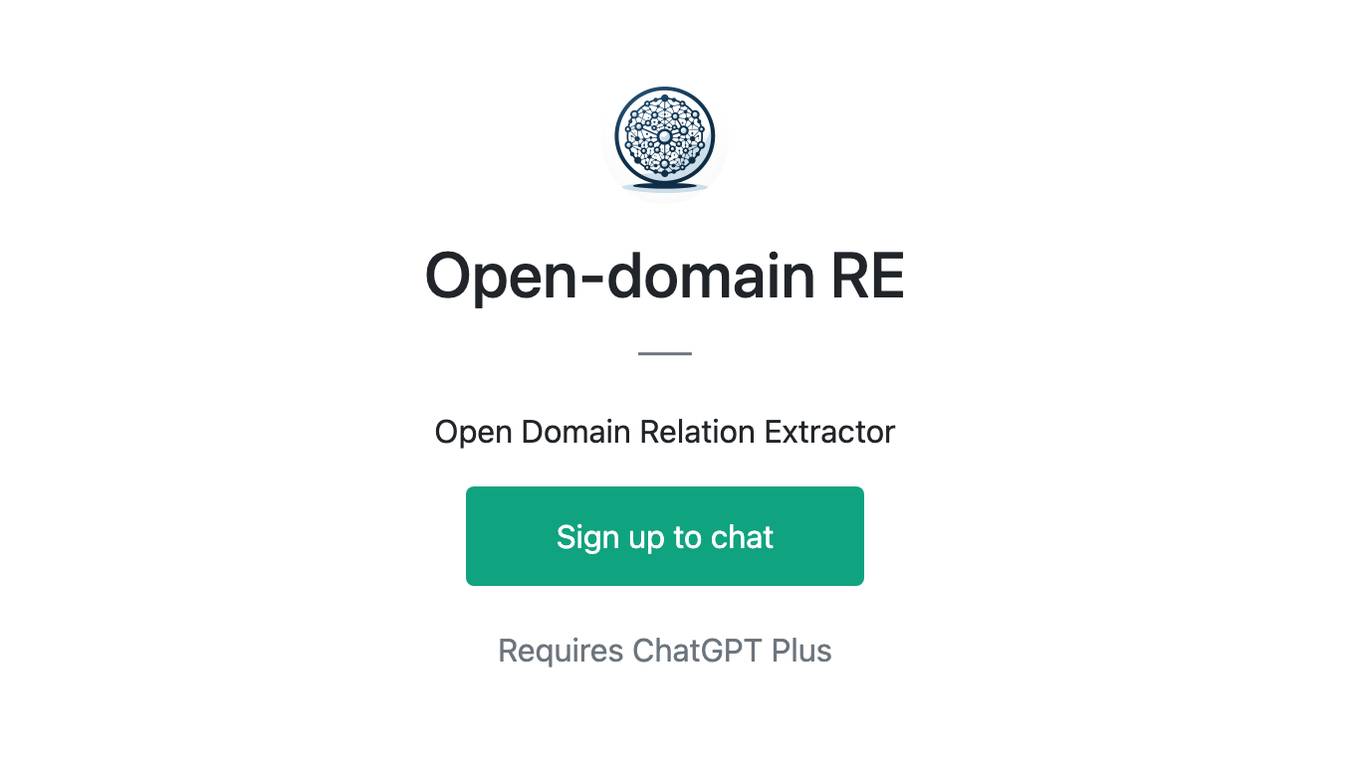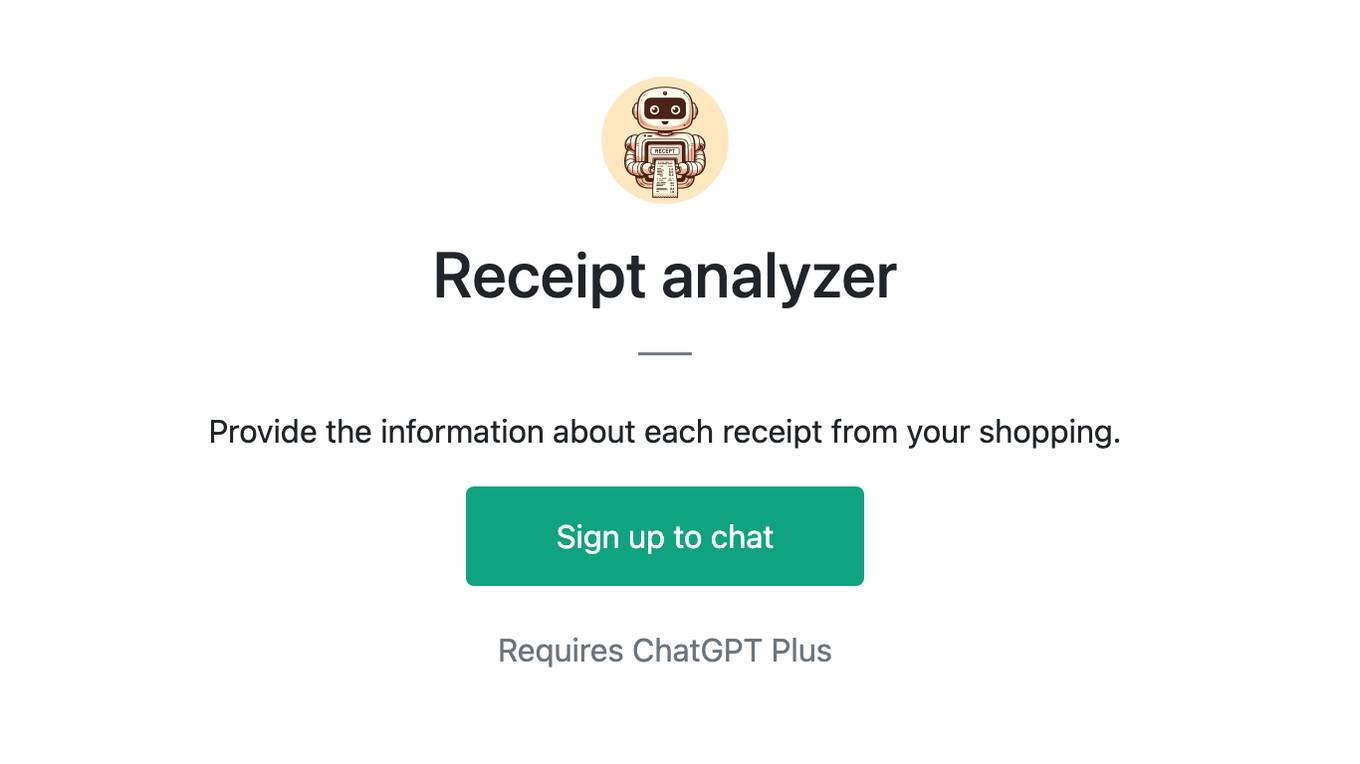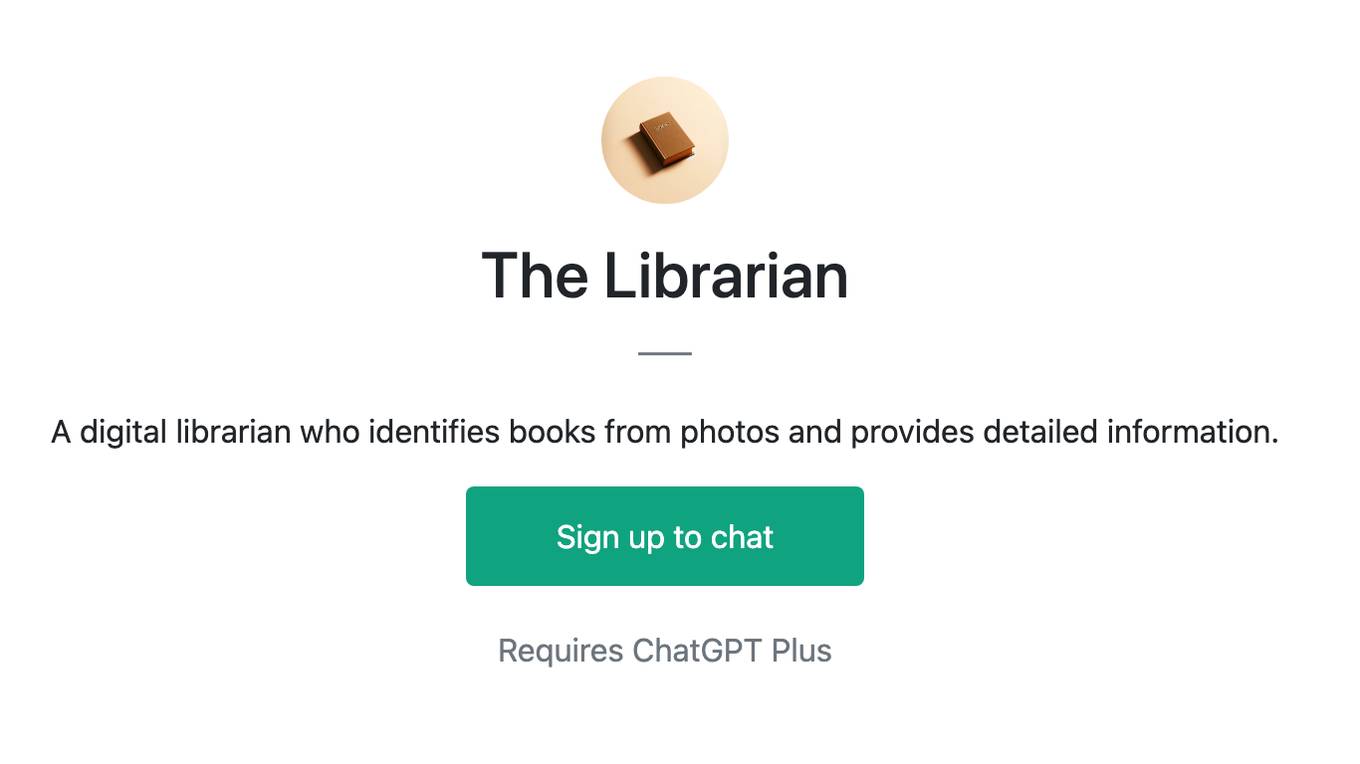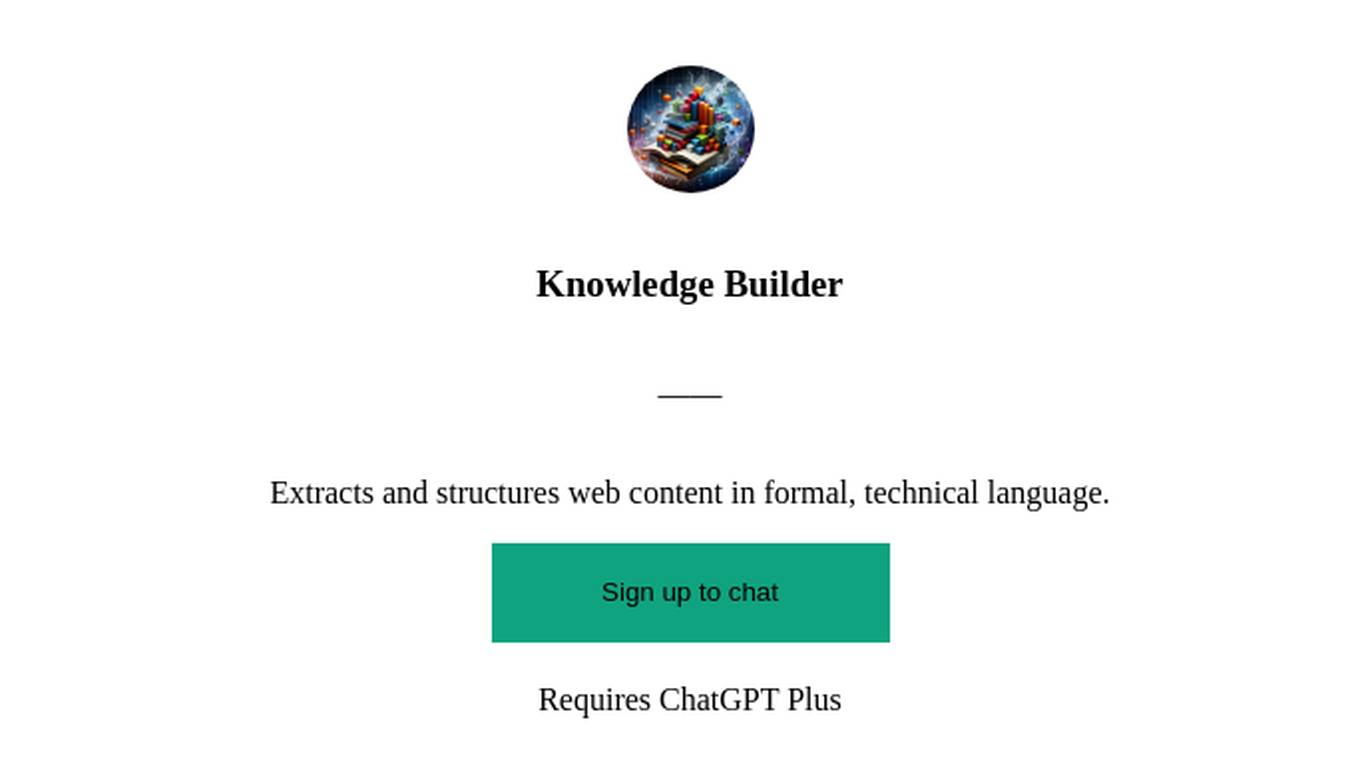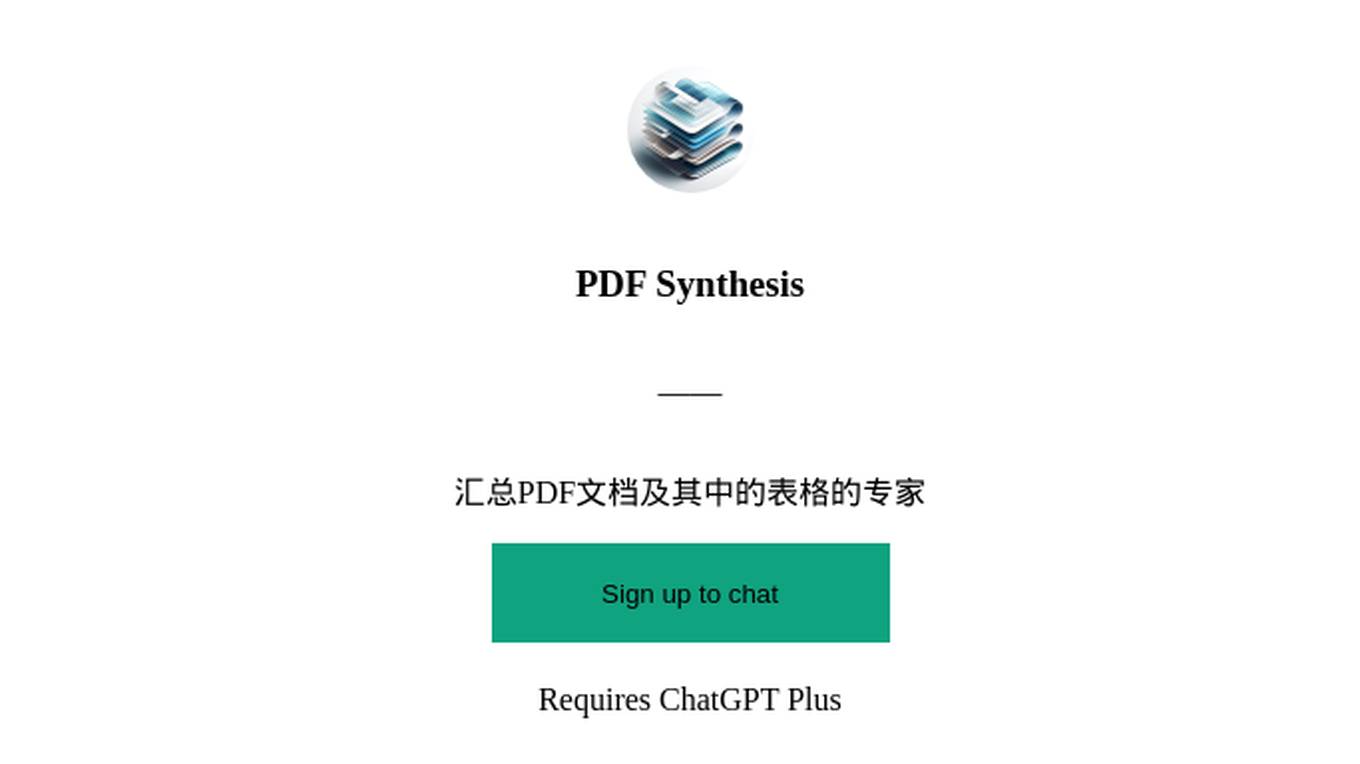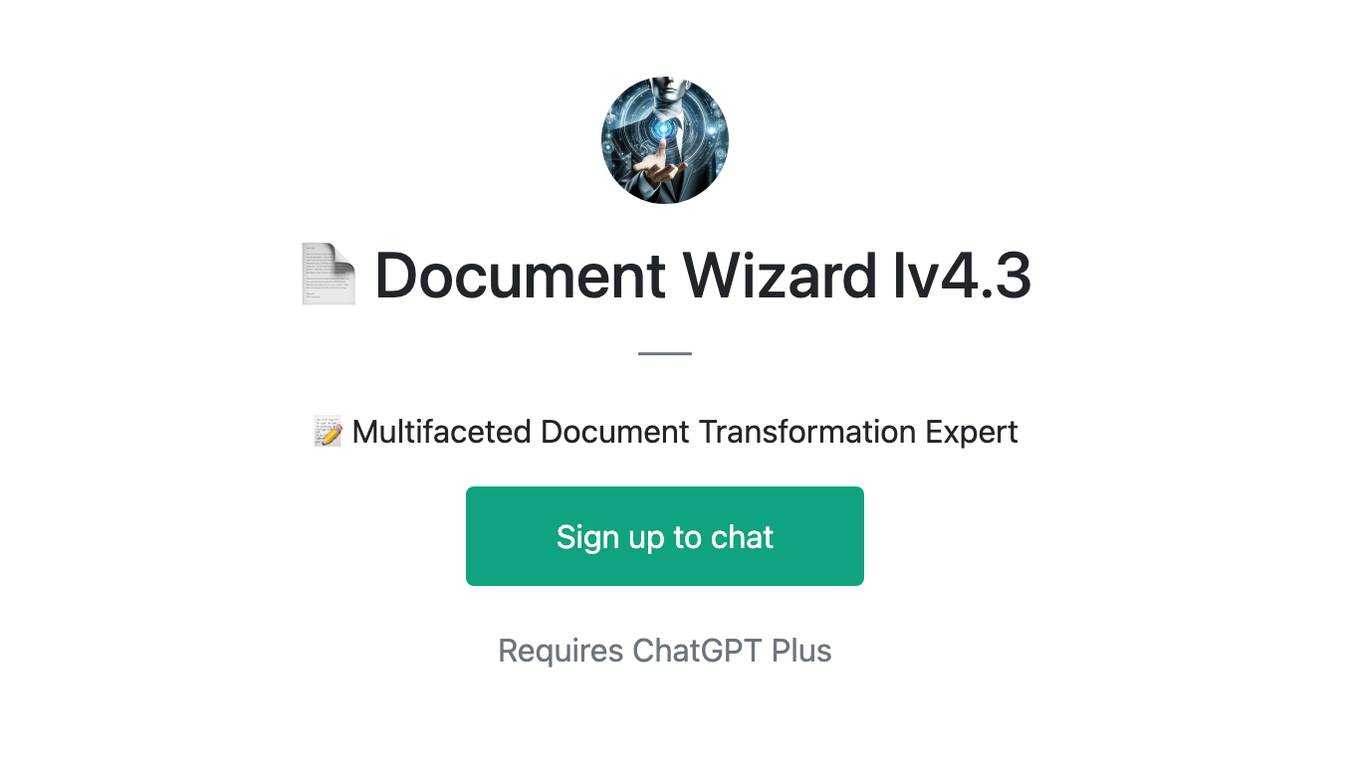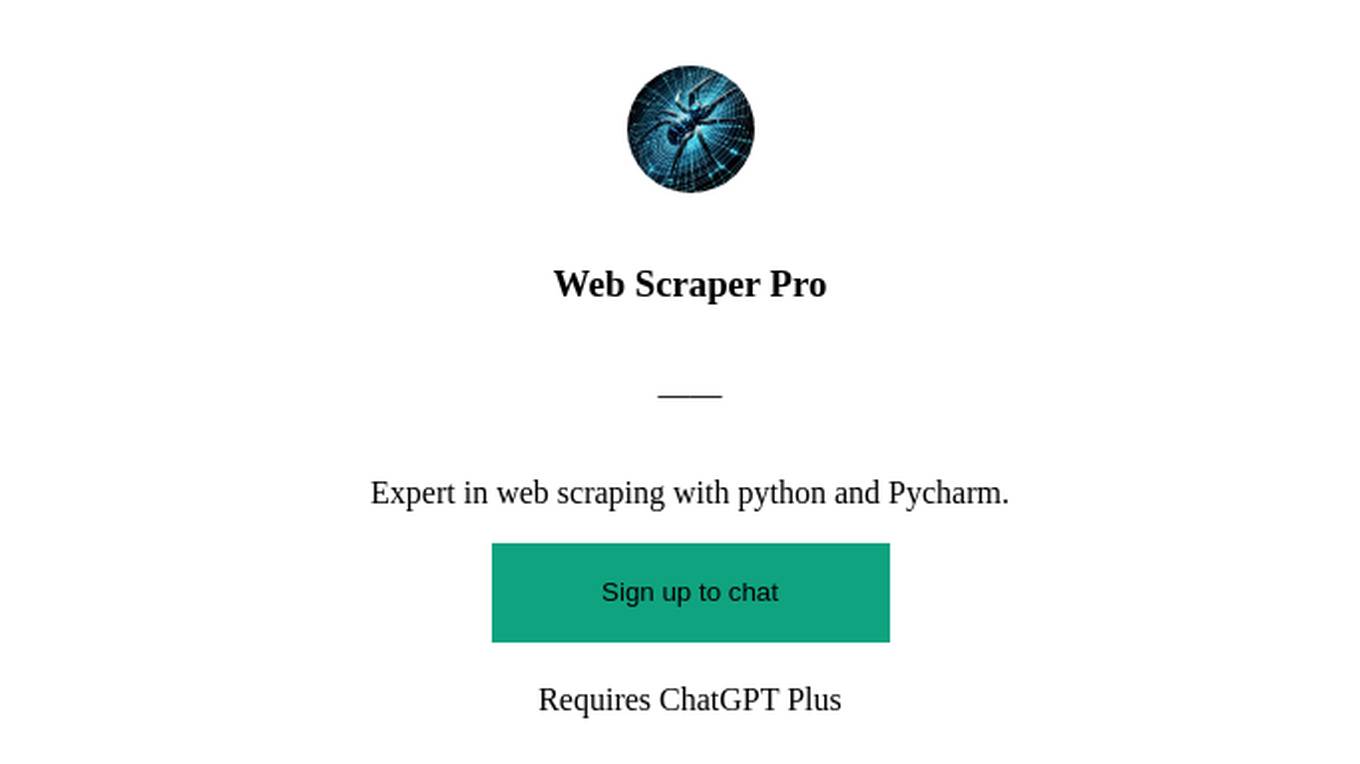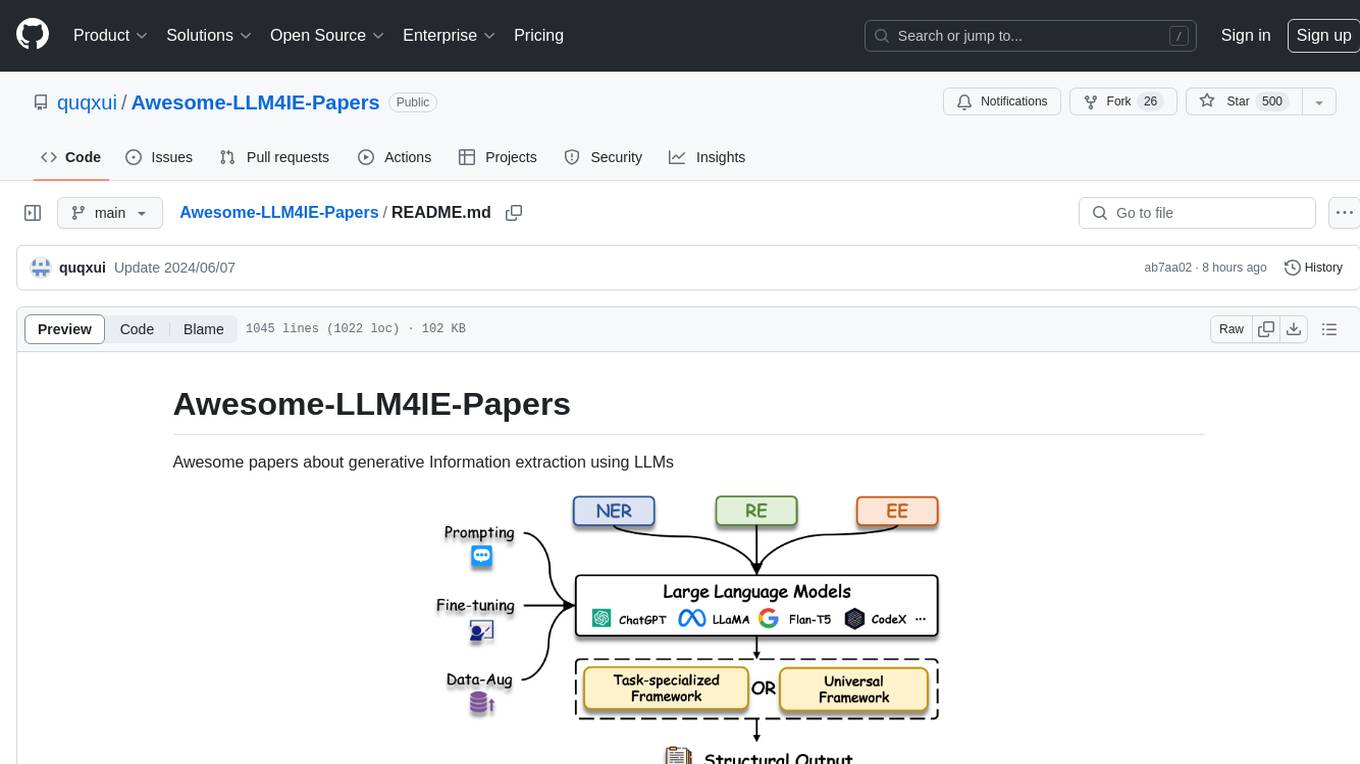AI tools for information extraction
Related Tools:
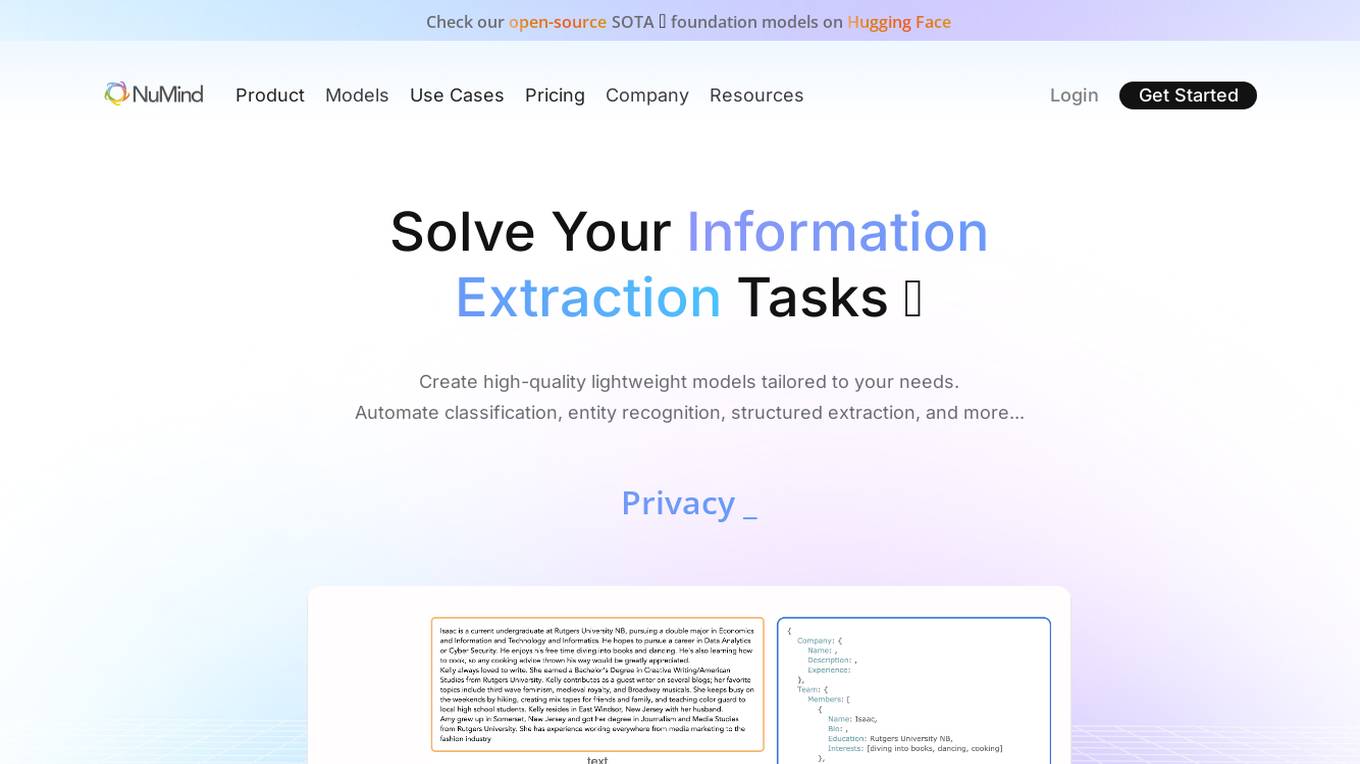
NuMind
NuMind is an AI tool designed to solve information extraction tasks efficiently. It offers high-quality lightweight models tailored to users' needs, automating classification, entity recognition, and structured extraction. The tool is powered by task-specific and domain-agnostic foundation models, outperforming GPT-4 and similar models. NuMind provides solutions for various industries such as insurance and healthcare, ensuring privacy, cost-effectiveness, and faster NLP projects.
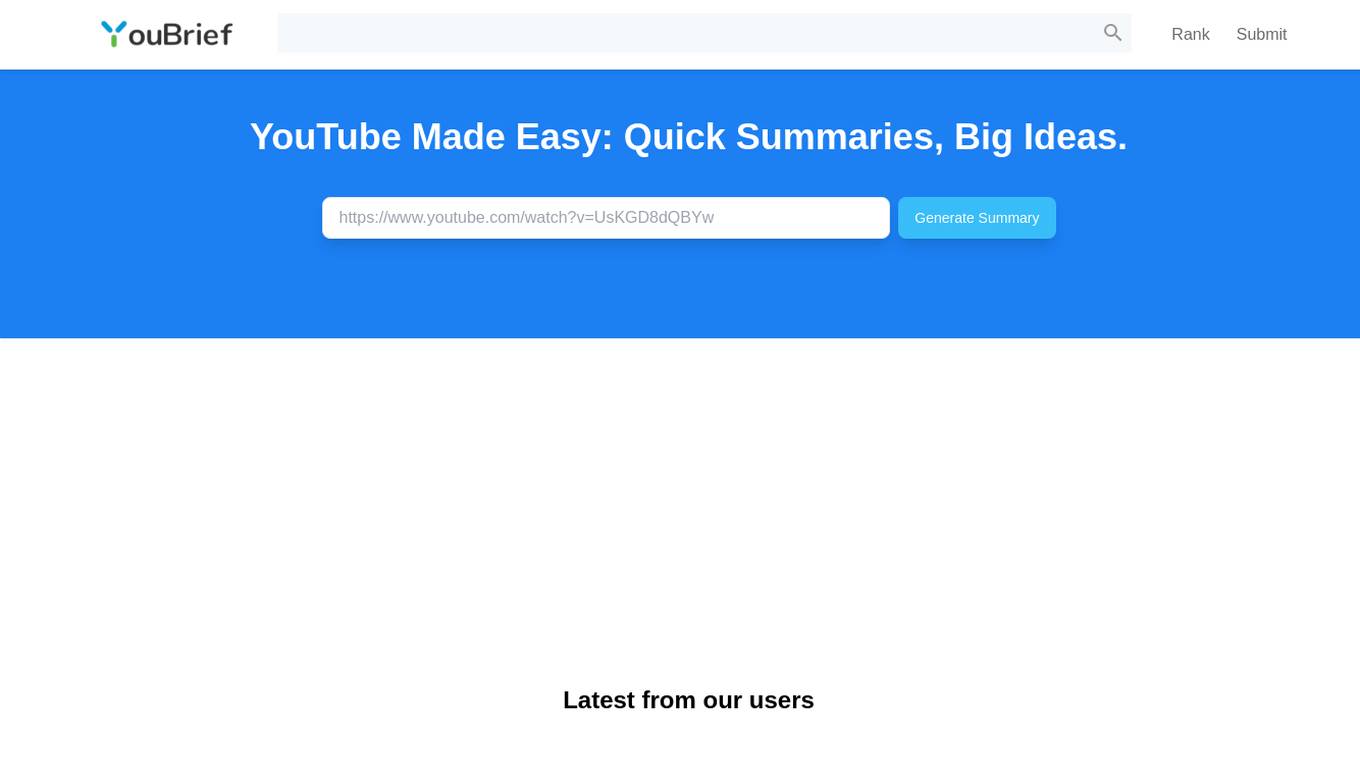
YouBrief
YouBrief is an AI-powered platform that provides instant YouTube video summaries for efficient learning. It offers quick summaries of various YouTube videos, highlighting key ideas and insights to help users save time and stay informed. With YouBrief, users can easily absorb essential information from a wide range of content, enhancing their learning experience and knowledge acquisition.
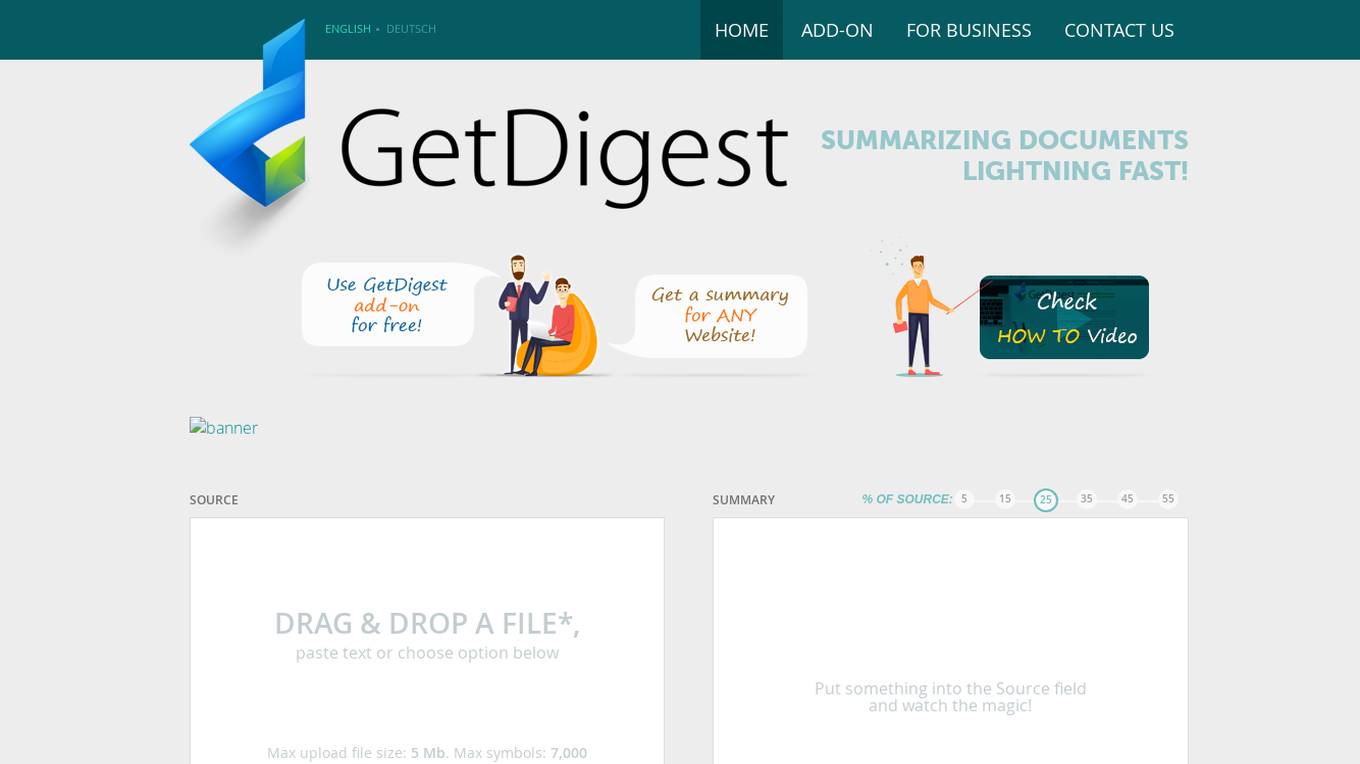
GetDigest
GetDigest is an AI-powered tool that provides lightning-fast document summarization. It can analyze web content and text documents in over 33 languages, summarizing them efficiently by ignoring irrelevant information. The technology is designed to help users process information more effectively, saving time and enhancing productivity. GetDigest offers businesses the opportunity to integrate its technology into their own infrastructure or software projects, supporting various text formats, web environments, archives, emails, and image formats.
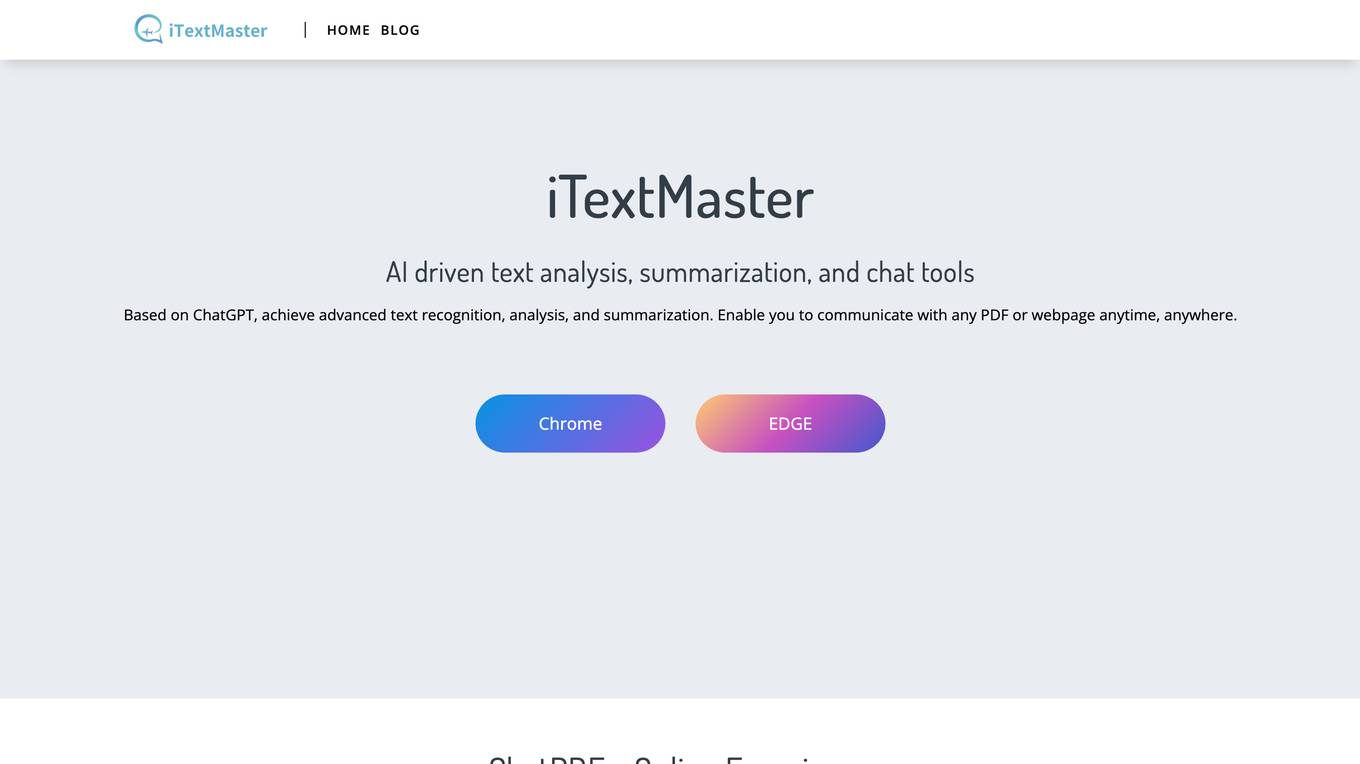
iTextMaster
iTextMaster is an AI-powered tool that allows users to analyze, summarize, and chat with text-based documents, including PDFs and web pages. It utilizes ChatGPT technology to provide intelligent answers to questions and extract key information from documents. The tool is designed to simplify text processing, improve understanding efficiency, and save time. iTextMaster supports multiple languages and offers a user-friendly interface for easy navigation and interaction.
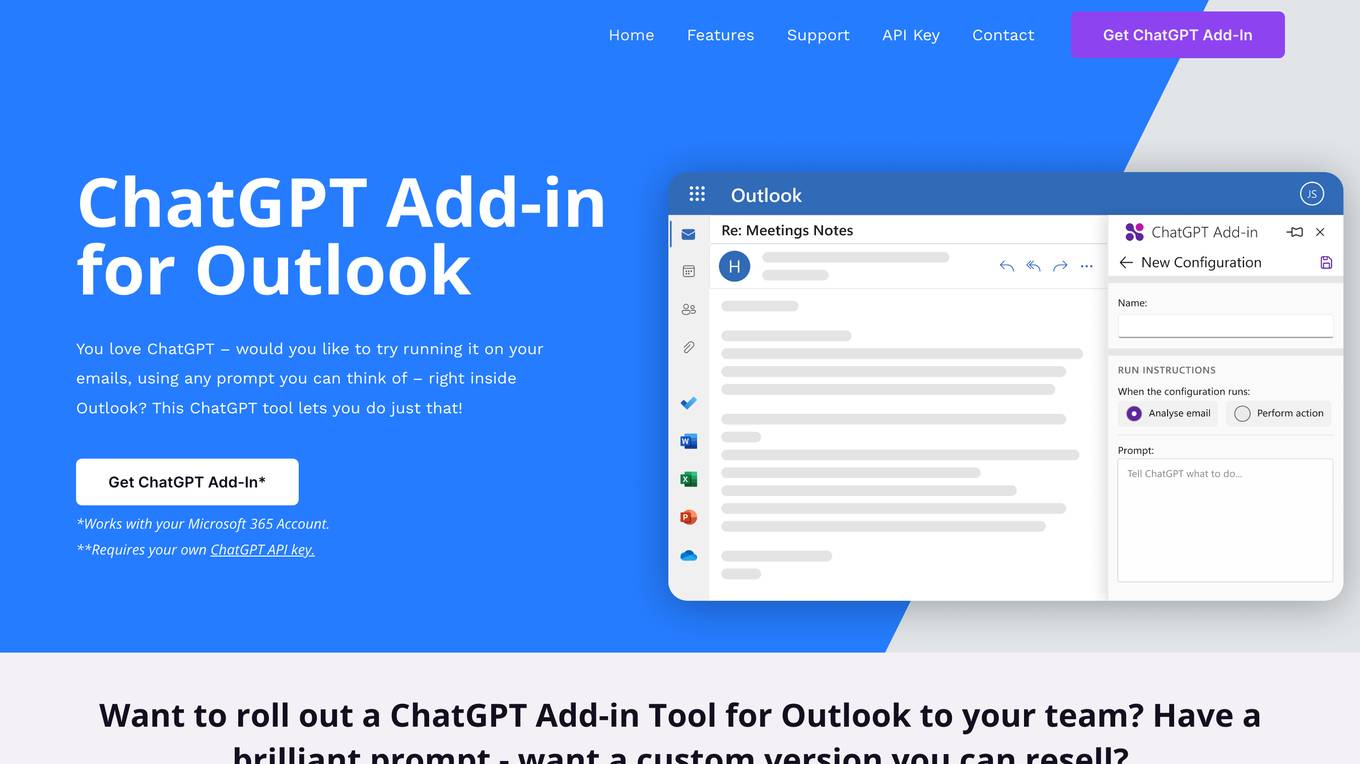
ChatGPT for Outlook
ChatGPT for Outlook is an AI tool that integrates the power of ChatGPT into Microsoft Outlook, allowing users to run ChatGPT on emails to generate summaries, highlights, and important information. Users can create custom prompts, process entire emails or specific parts, manage multiple configurations, and improve email efficiency. Blueberry Consultants, the developer, offers custom versions for businesses and teams, enabling users to resell the tool with unique prompts. The tool enhances productivity and information management within Outlook, leveraging AI technology for email processing and organization.
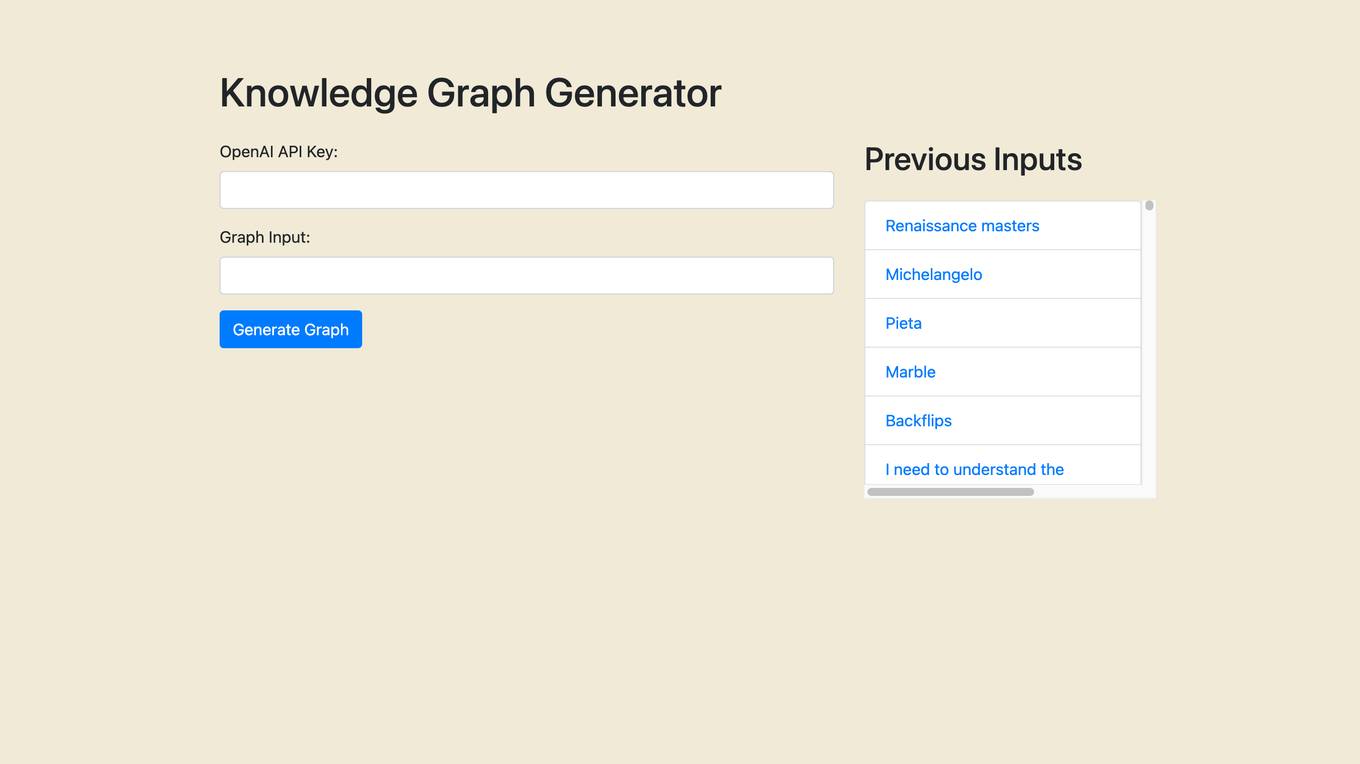
Knowledge Graph Generator
The website is an AI tool designed to generate a knowledge graph based on input text. It uses advanced algorithms and machine learning capabilities to streamline operations, deliver personalized experiences, and unlock new possibilities. Users can input text related to various topics, and the tool processes the information to create a structured knowledge graph.

AI2Page
AI2Page is an advanced AI tool that allows users to easily convert text into structured JSON objects. With its intuitive interface and powerful algorithms, AI2Page simplifies the process of analyzing and extracting information from text data. Users can simply input text, and AI2Page will automatically generate structured JSON output, making it ideal for data extraction, content analysis, and information retrieval tasks. The tool is designed to be user-friendly and efficient, catering to both beginners and experienced users in the field of data analysis and AI applications.
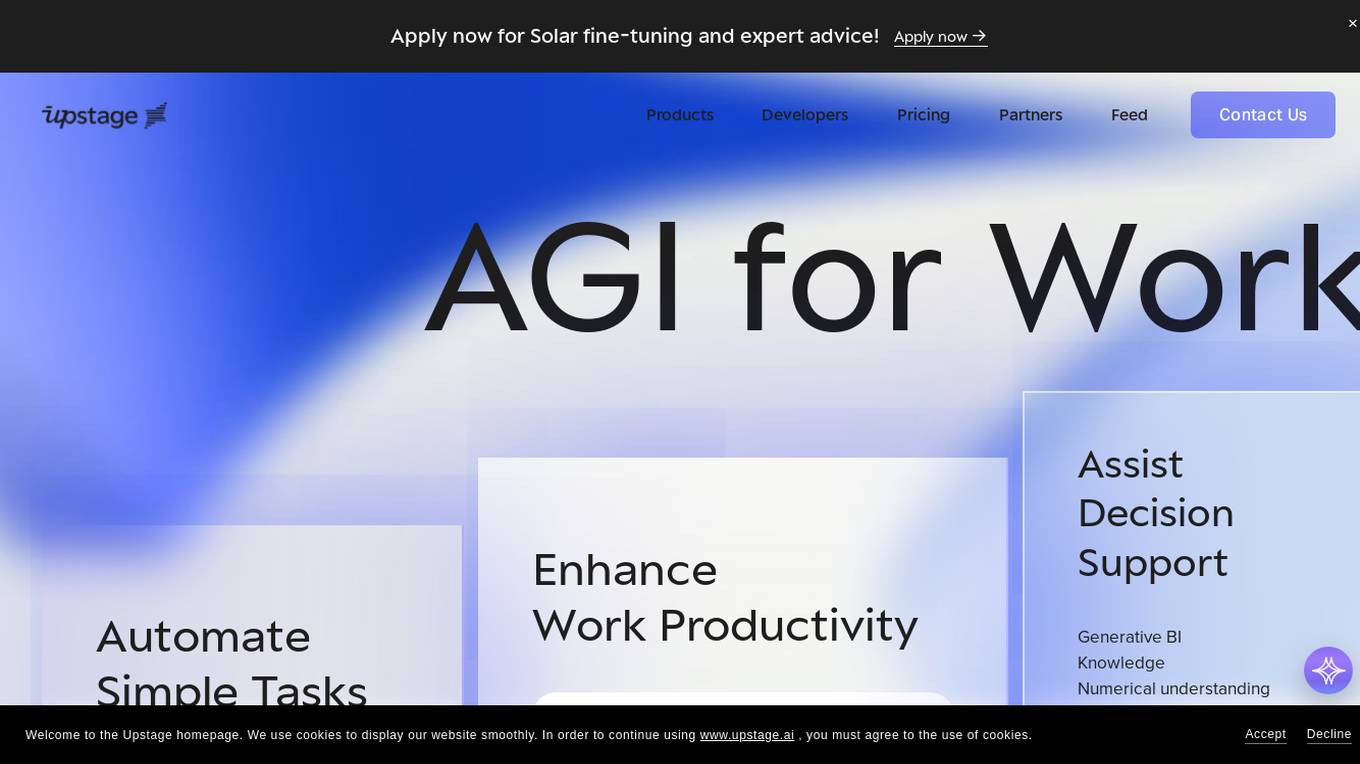
Upstage
Upstage is an Artificial General Intelligence (AGI) application designed to enhance work productivity by automating simple tasks and providing decision support through generative Business Intelligence (BI) knowledge and numerical understanding. The application offers various features such as Document AI, Solar LLM, and Developers Demo Playground, enabling users to automate tasks, extract key information from documents, and create conversational agents. Upstage aims to streamline workflow automation and improve efficiency in various domains such as healthcare, finance, and law.
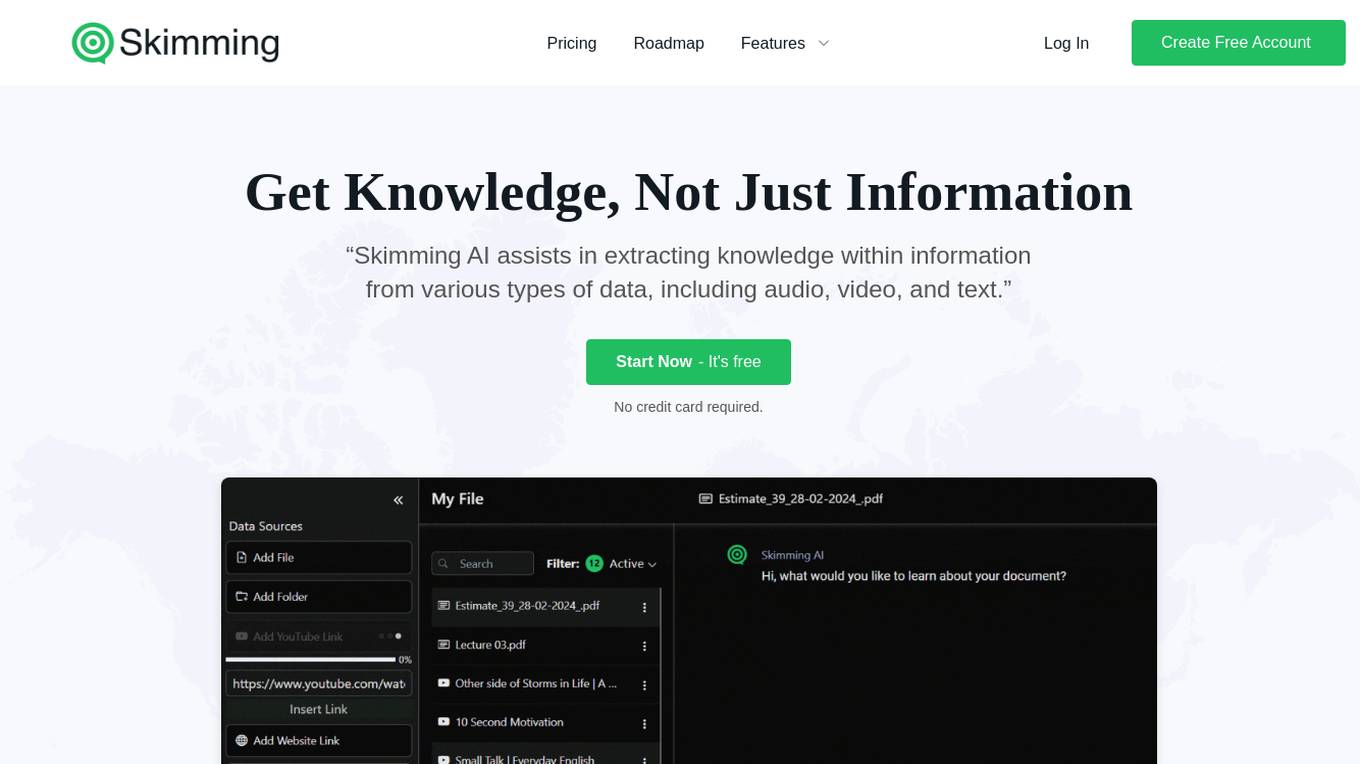
Skimming
Skimming is an AI tool that enables users to interact with various types of data, including audio, video, and text, to extract knowledge. It offers features like chatting with documents, YouTube videos, websites, audio, and video, as well as custom prompts and multilingual support. Skimming is trusted by over 100,000 users and is designed to save time and enhance information extraction. The tool caters to a diverse audience, including teachers, students, businesses, researchers, scholars, lawyers, HR professionals, YouTubers, and podcasters.
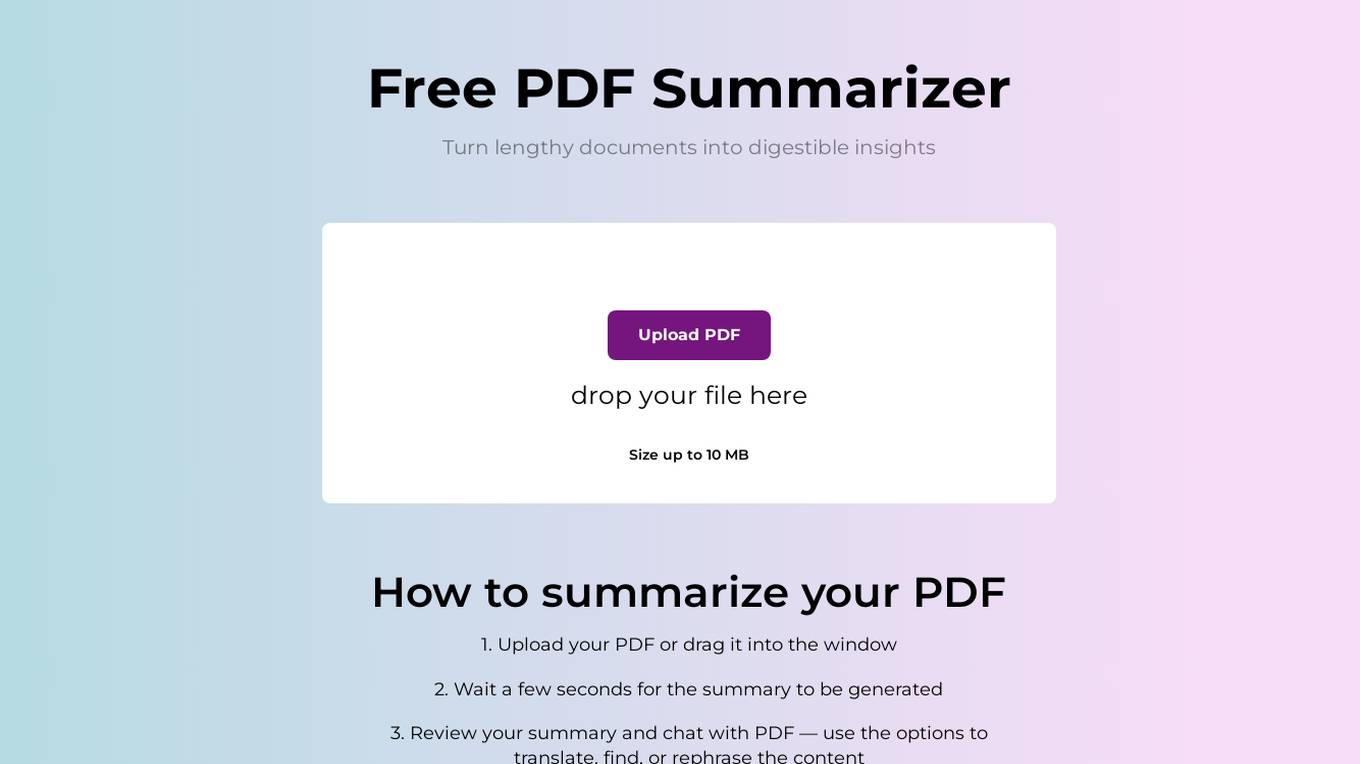
PDF Summarizer
PDFsummarizer.net is an AI tool designed to simplify how users interact with PDF documents. It instantly generates AI summaries of PDF content, breaks language barriers, and offers organized conversations with direct citations. Whether for studying, research, or professional purposes, this tool enhances understanding and accessibility of information across various fields. It improves productivity by streamlining the process of extracting vital information.
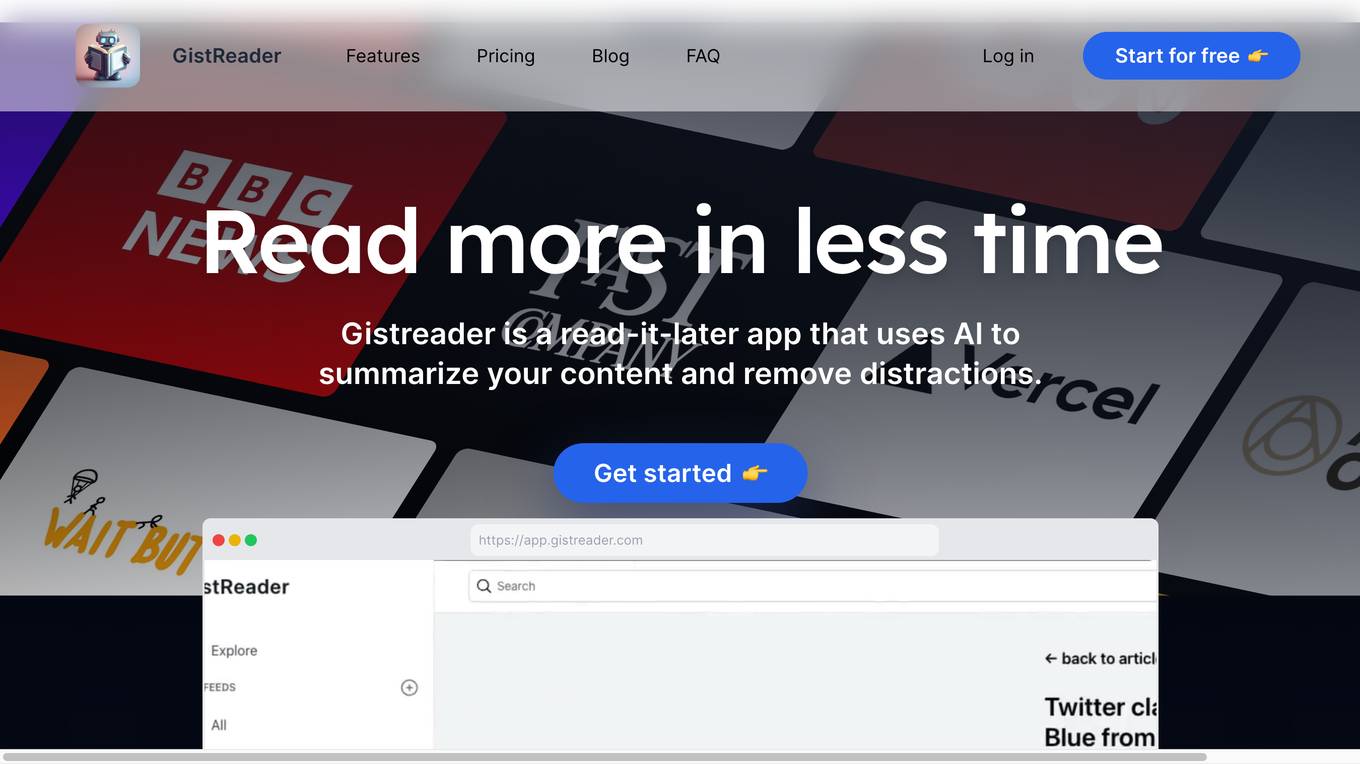
GistReader
GistReader is an AI-enhanced web reader that helps users save time by summarizing content and removing distractions. It transforms articles into clean, readable formats by utilizing AI technology. The application supports single page articles, RSS feeds, and offers AI summaries to extract the essence of articles quickly. GistReader works across all devices, syncs preferences, and offers various features like keyboard shortcuts, Pocket integration, YouTube support, and dark mode.
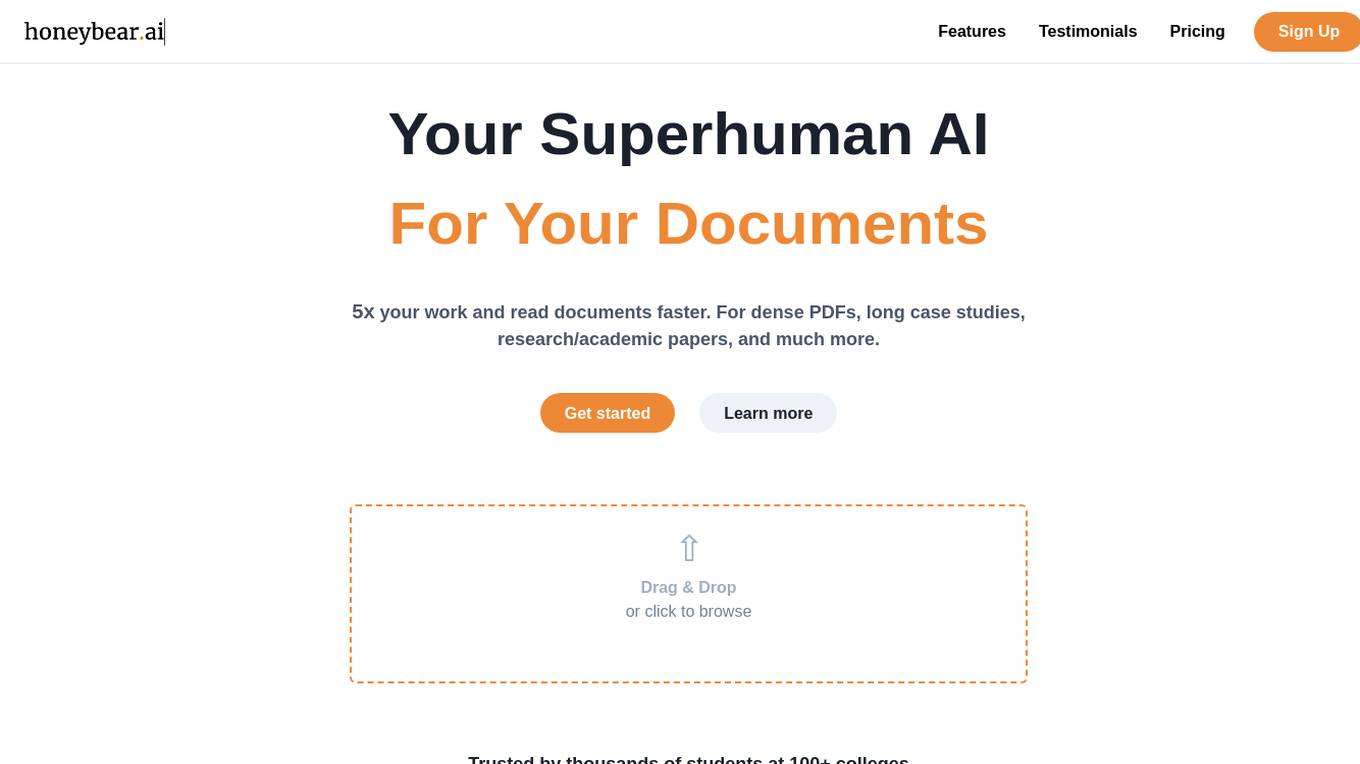
Honeybear.ai
Honeybear.ai is an AI tool designed to simplify document reading tasks. It utilizes advanced algorithms to extract and analyze text from various documents, making it easier for users to access and comprehend information. With Honeybear.ai, users can streamline their document processing workflows and enhance productivity.
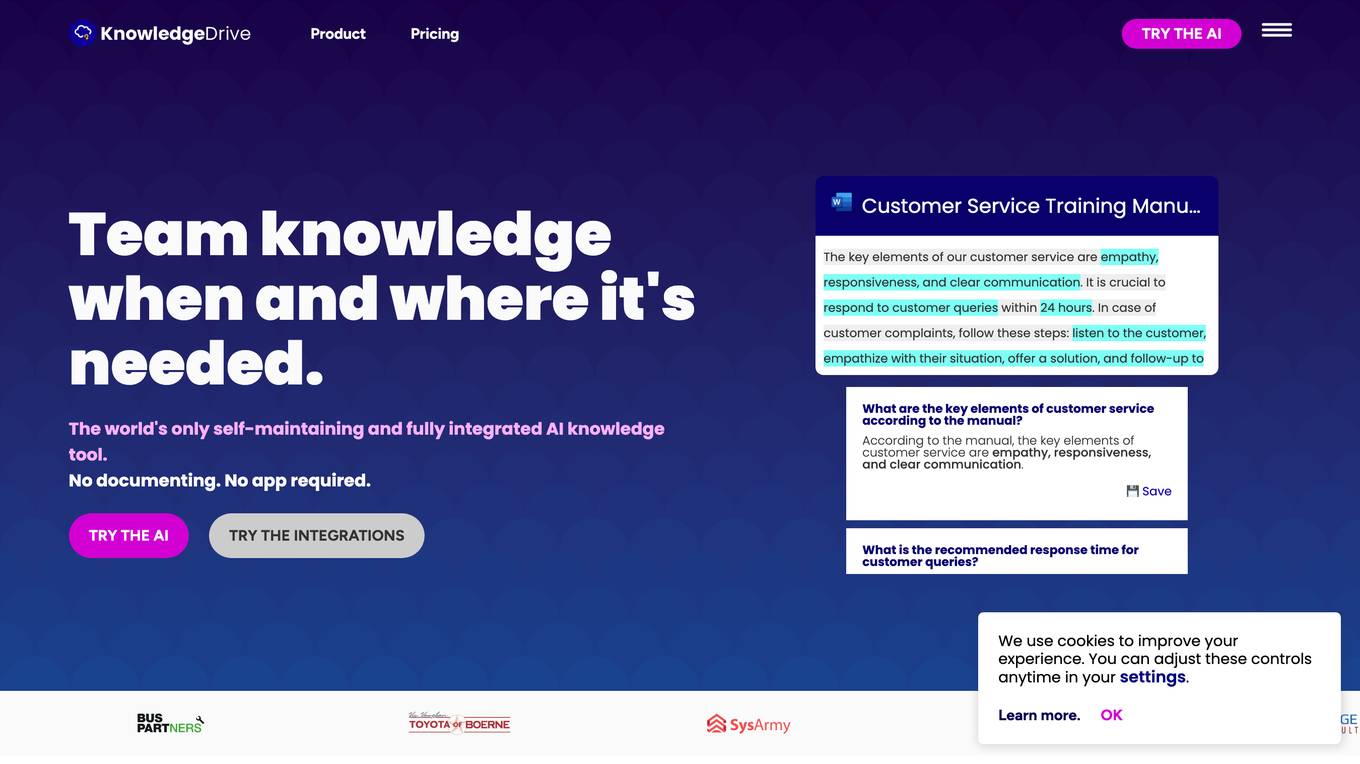
Knowledge Drive
Knowledge Drive is the world's only self-organizing, self-maintaining, and fully integrated work knowledge system. It utilizes AI technology to automatically build a knowledge base by extracting useful information from documents. The system ensures knowledge freshness, easy access to information, and seamless integration across various platforms like Microsoft Office 365, Google Workspace, and Slack. Knowledge Drive aims to revolutionize knowledge management and boost productivity in teams by providing a central source of truth and eliminating the need for manual documentation.
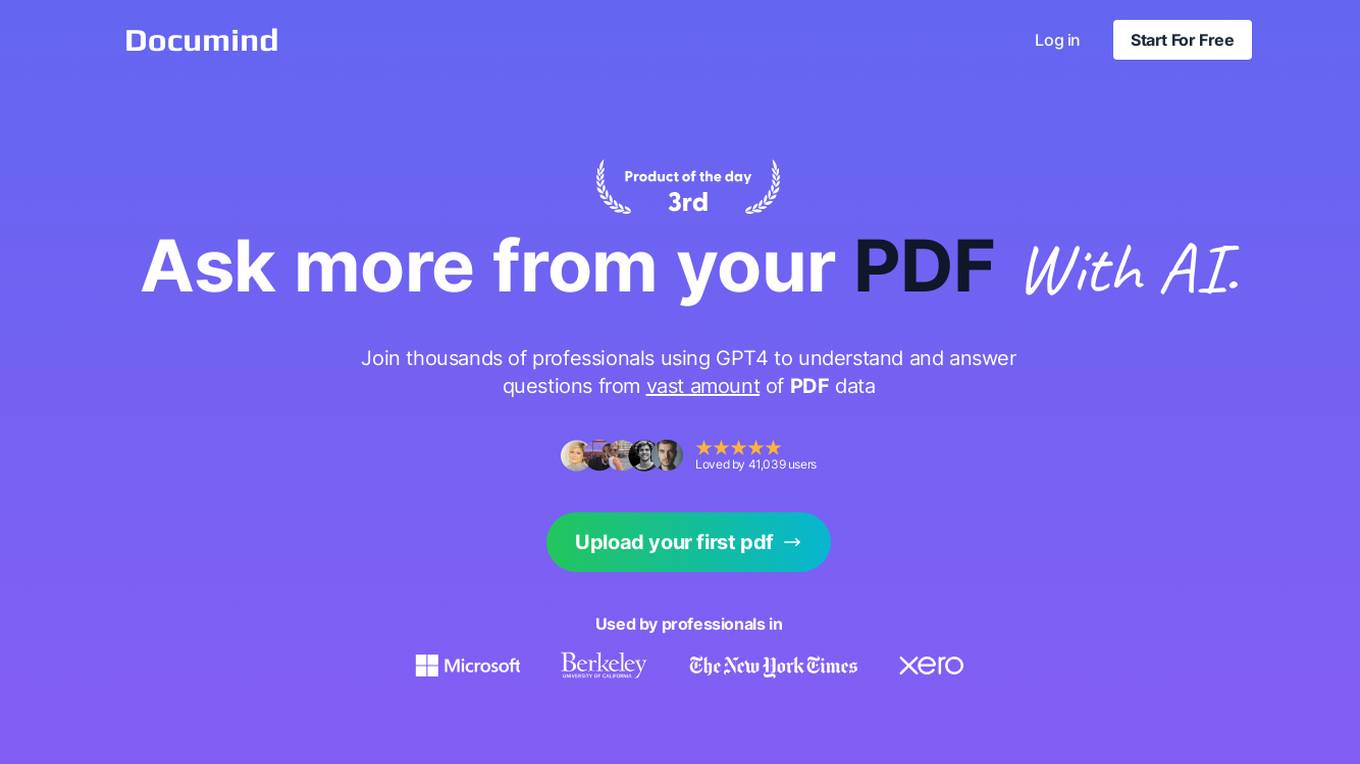
Chat With PDF AI Tool
The Chat With PDF AI Tool is an innovative application that allows users to interact with PDF documents using artificial intelligence technology. Users can engage in conversations with the AI tool to extract information, ask questions, and receive instant responses. The tool simplifies the process of working with PDF files by providing a conversational interface, making it user-friendly and efficient. With its advanced AI capabilities, the tool can understand natural language queries and provide accurate results, enhancing productivity and workflow efficiency.

Skim.ai
Skim.ai is an AI-powered tool designed to assist users in summarizing and extracting key information from text. By leveraging advanced natural language processing algorithms, Skim.ai can quickly analyze and condense lengthy documents, articles, or web pages into concise summaries. Users can easily access the summarized content, saving time and effort in information consumption. Skim.ai aims to enhance productivity and efficiency by providing a streamlined way to digest and comprehend textual data.
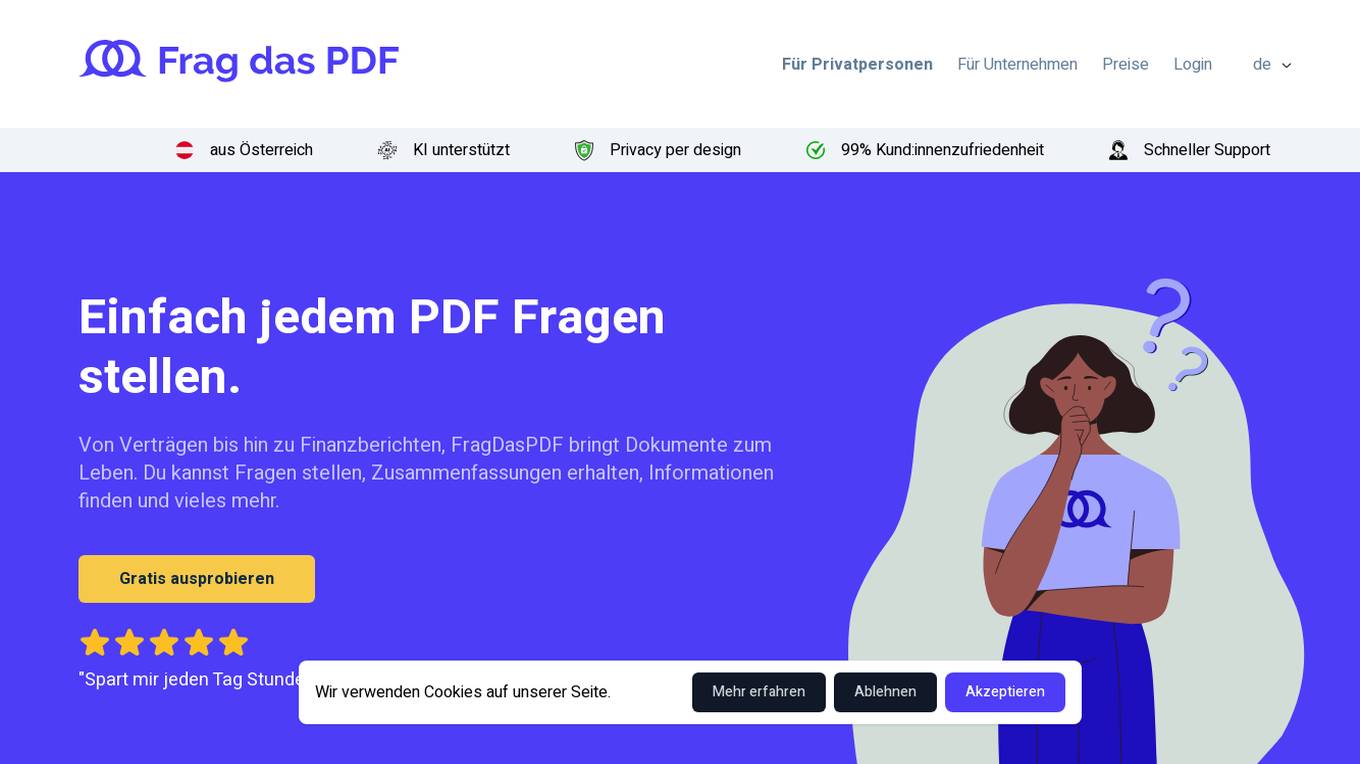
FragDasPDF
**FragDasPDF** is an AI-powered tool that allows users to ask questions about PDF documents and receive answers in natural language. It supports a wide range of languages and can extract information from complex documents quickly and easily. With FragDasPDF, users can save time and effort by getting the information they need without having to read through long and dense documents.
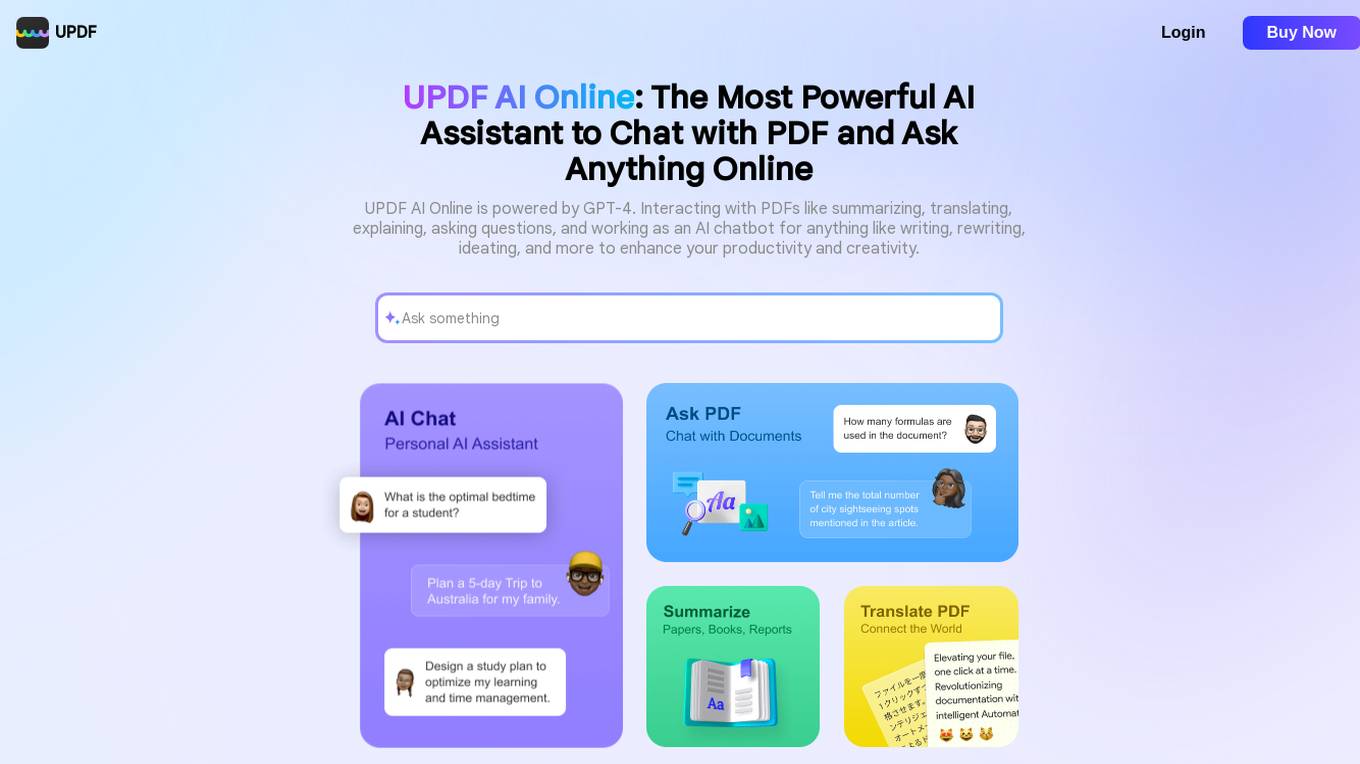
UPDF AI Online
UPDF AI Online is an AI-powered platform that allows users to interact with PDF documents through a chat interface. The platform is powered by GPT-4, a state-of-the-art language model, enabling users to ask questions, extract information, and perform various tasks on PDF files seamlessly. With UPDF AI Online, users can easily navigate through complex documents, search for specific content, summarize text, and much more, all through a conversational interface. The platform aims to simplify the way users interact with PDFs, making document management more efficient and user-friendly.

Summarizely
Summarizely.org is a website that provides a text summarization tool to help users condense lengthy articles or documents into shorter, more digestible versions. The tool uses advanced algorithms to analyze the content and generate concise summaries, saving users time and effort in extracting key information. Users can simply paste the text they want to summarize into the tool, and within seconds, receive a condensed version that captures the main points of the original text. Summarizely.org aims to enhance productivity and efficiency for individuals who need to quickly grasp the essence of complex information.
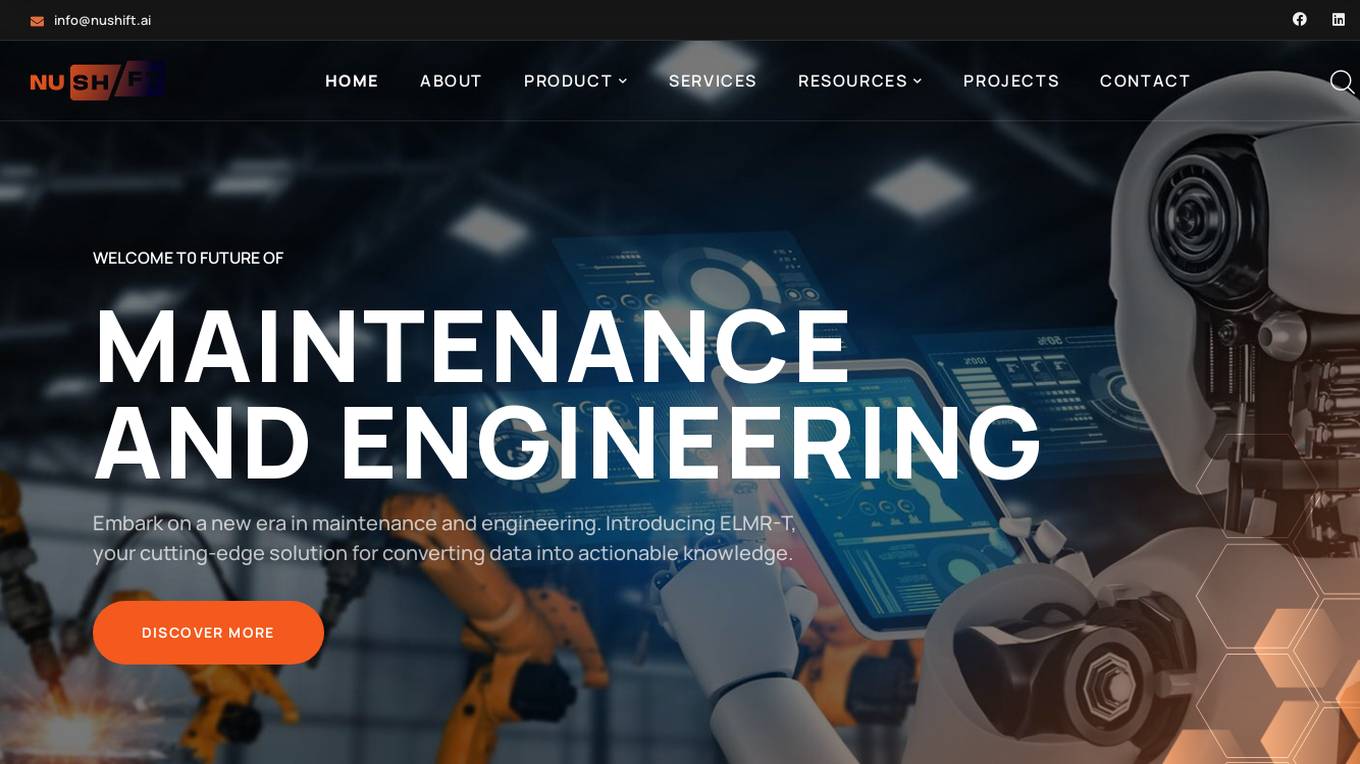
NuShift Inc
NuShift Inc is an AI-powered application that offers ELMR-T, a cutting-edge solution for converting data into actionable knowledge in the maintenance and engineering domain. Leveraging machine learning, machine translation, speech recognition, question answering, and information extraction, ELMR-T provides intelligent AI insights to empower maintenance teams. The application is designed to streamline data-driven decision-making, enhance user interaction, and boost efficiency by delivering precise and meaningful results effortlessly.
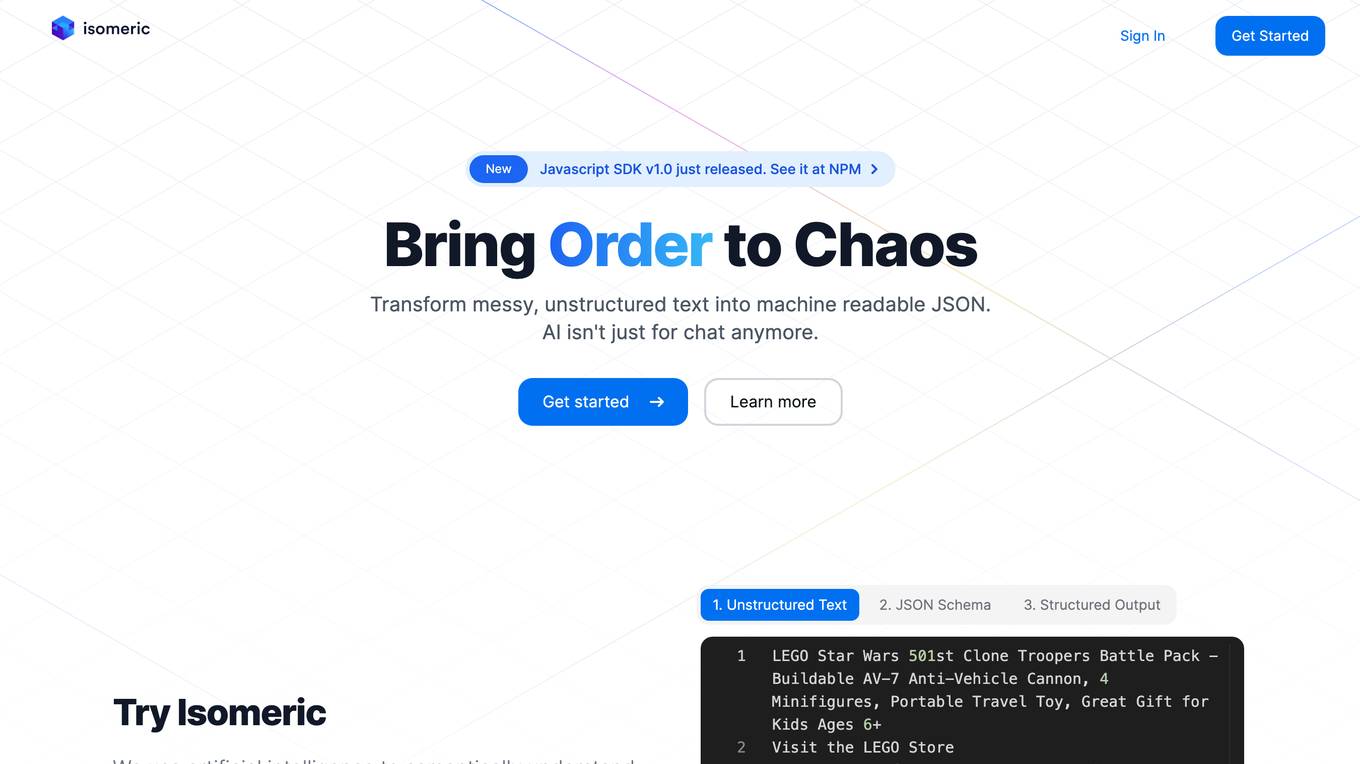
Isomeric
Isomeric is an AI tool that uses artificial intelligence to semantically understand unstructured text and extract specific data. It helps transform messy text into machine-readable JSON, enabling tasks such as web scraping, browser extensions, and general information extraction. With Isomeric, users can scale their data gathering pipeline in seconds, making it a valuable tool for various industries like customer support, data platforms, and legal services.
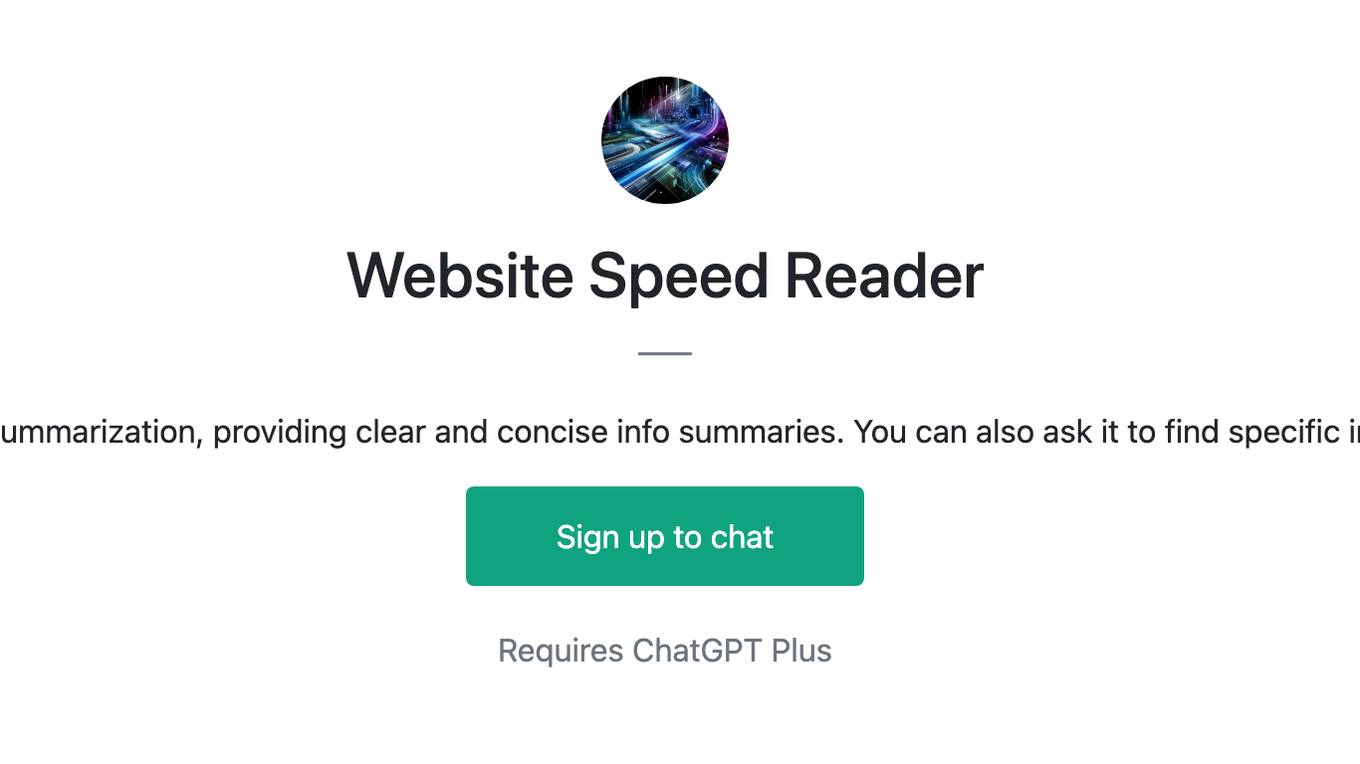
Website Speed Reader
Expert in website summarization, providing clear and concise info summaries. You can also ask it to find specific info from the site.
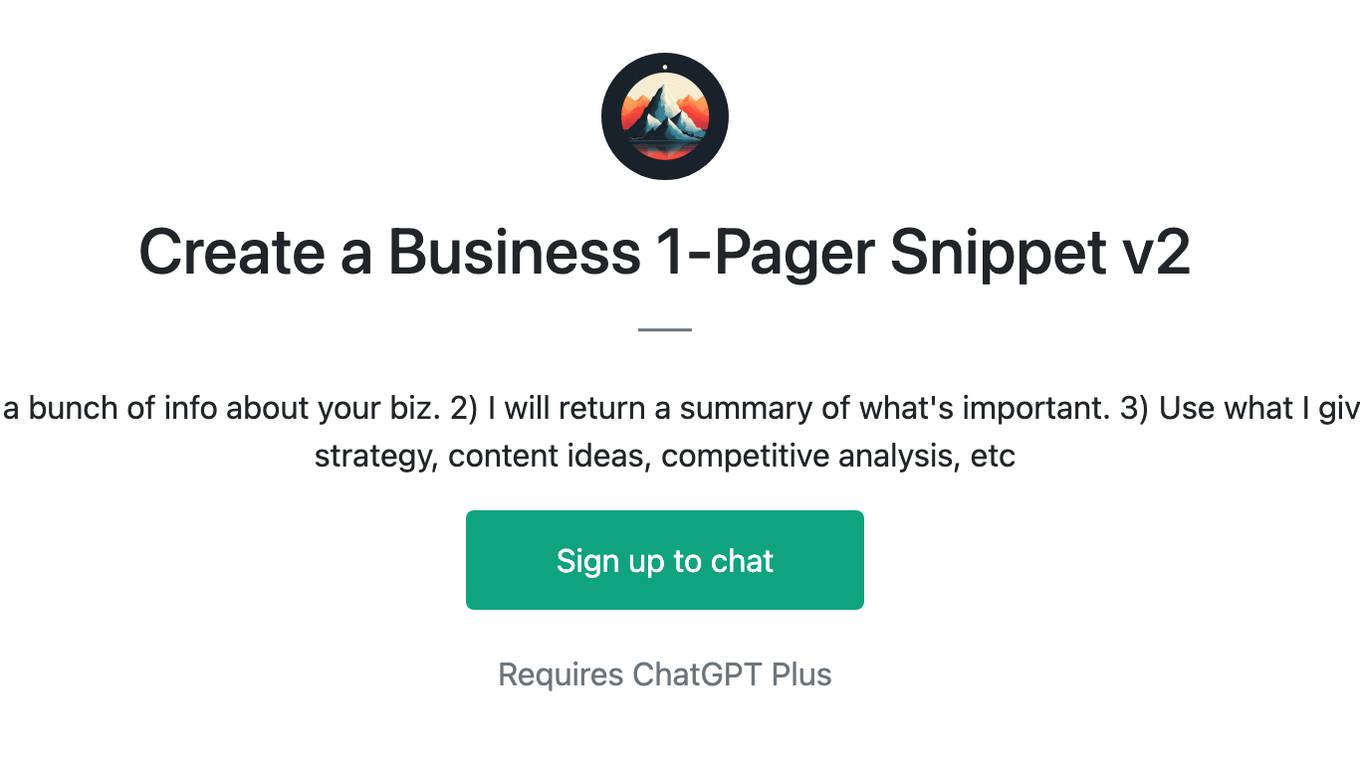
Create a Business 1-Pager Snippet v2
1) Input a URL, attachment, or copy/paste a bunch of info about your biz. 2) I will return a summary of what's important. 3) Use what I give you for other prompts, e.g.: marketing strategy, content ideas, competitive analysis, etc

Business Card Digitizer
Simply take a photo of your business cards and upload it to the chat. I'll take it from there!
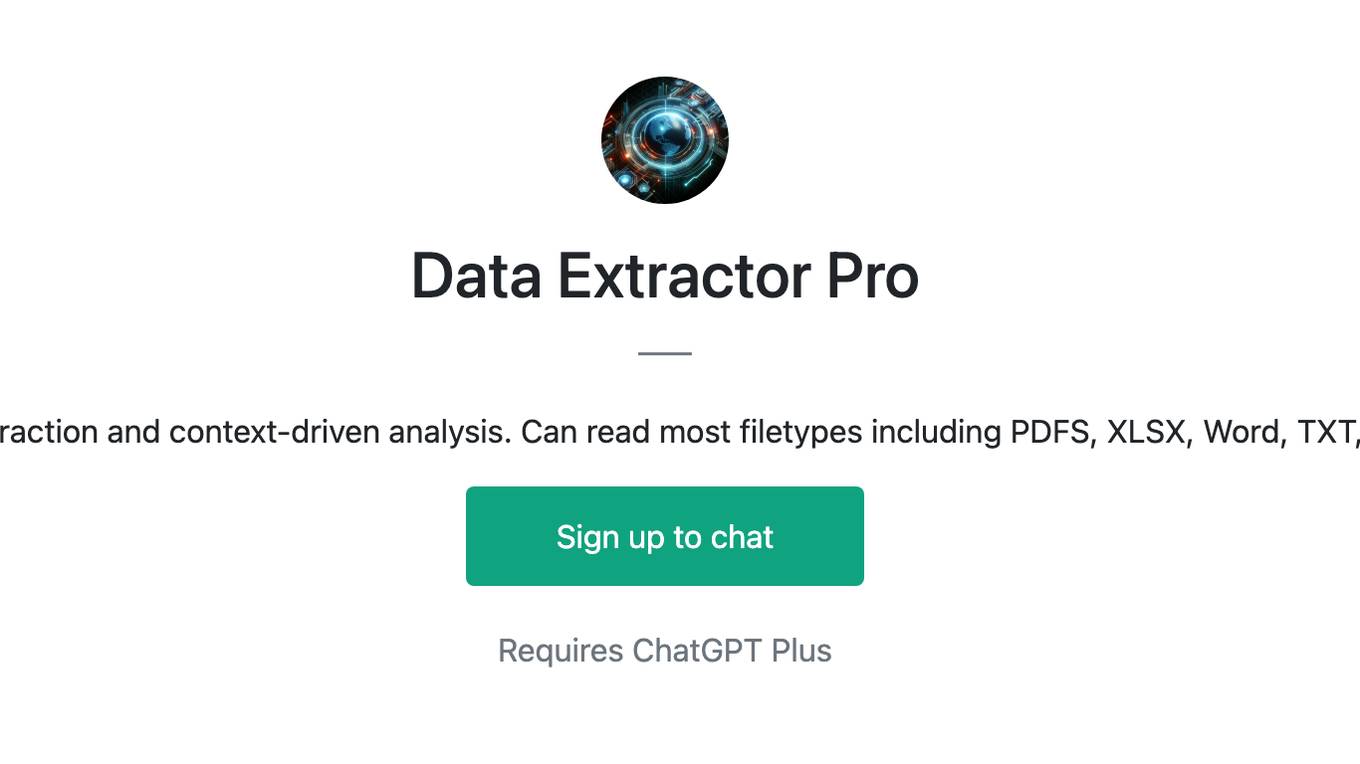
Data Extractor Pro
Expert in data extraction and context-driven analysis. Can read most filetypes including PDFS, XLSX, Word, TXT, CSV, EML, Etc.
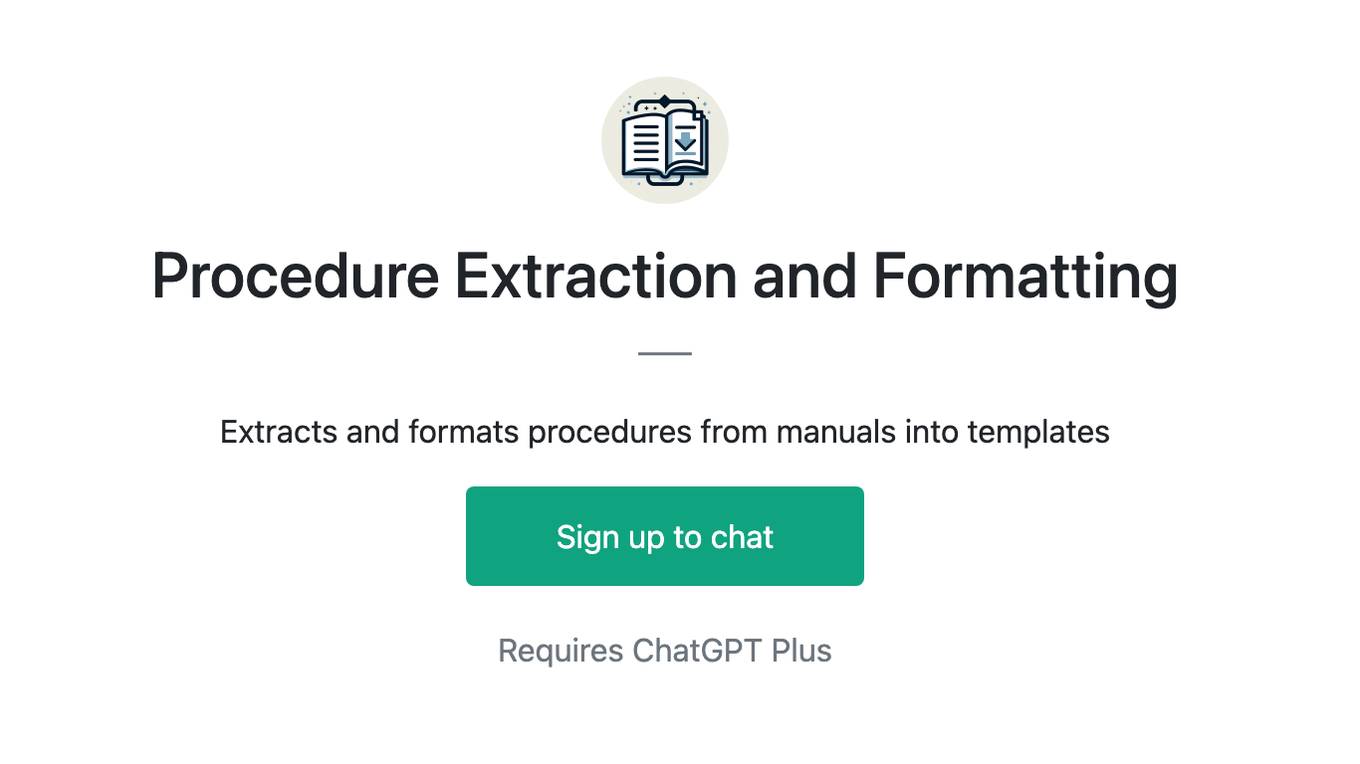
Procedure Extraction and Formatting
Extracts and formats procedures from manuals into templates
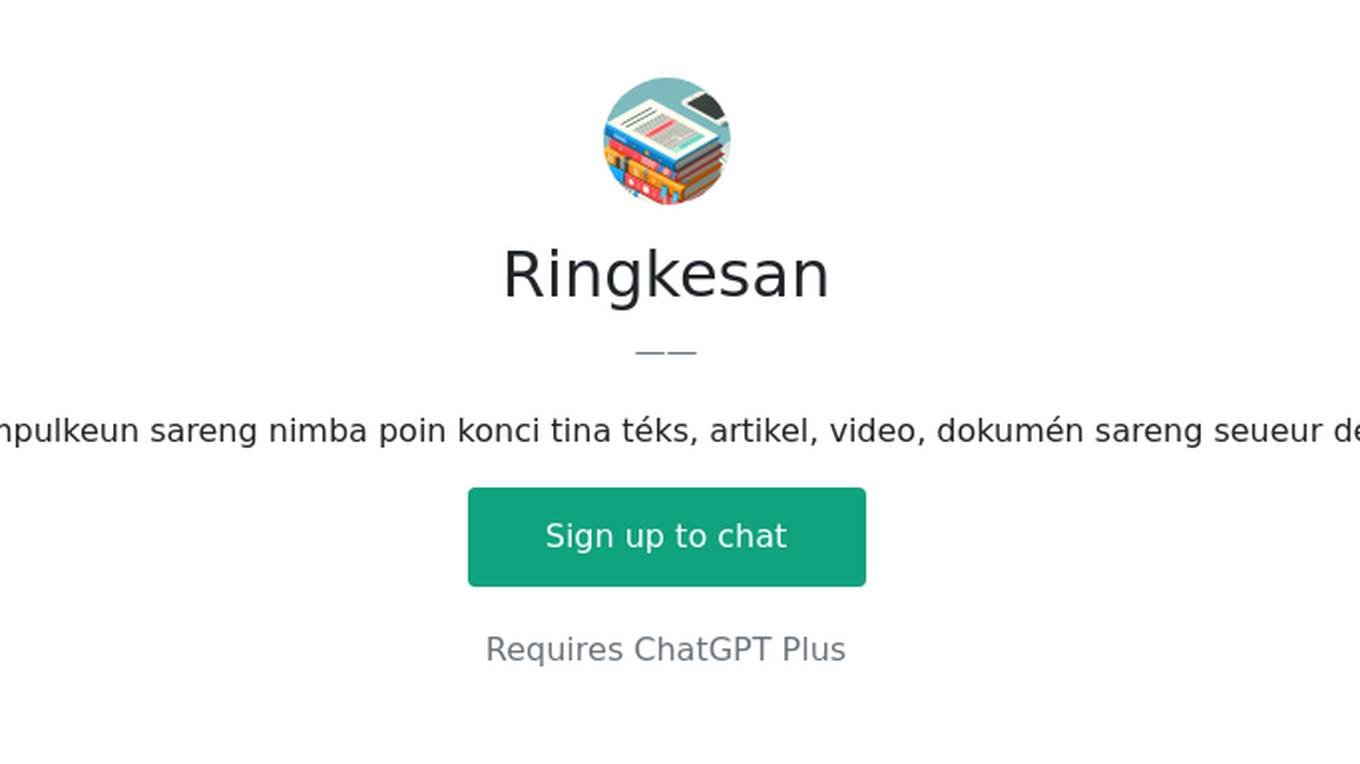
Ringkesan
Nyimpulkeun sareng nimba poin konci tina téks, artikel, video, dokumén sareng seueur deui
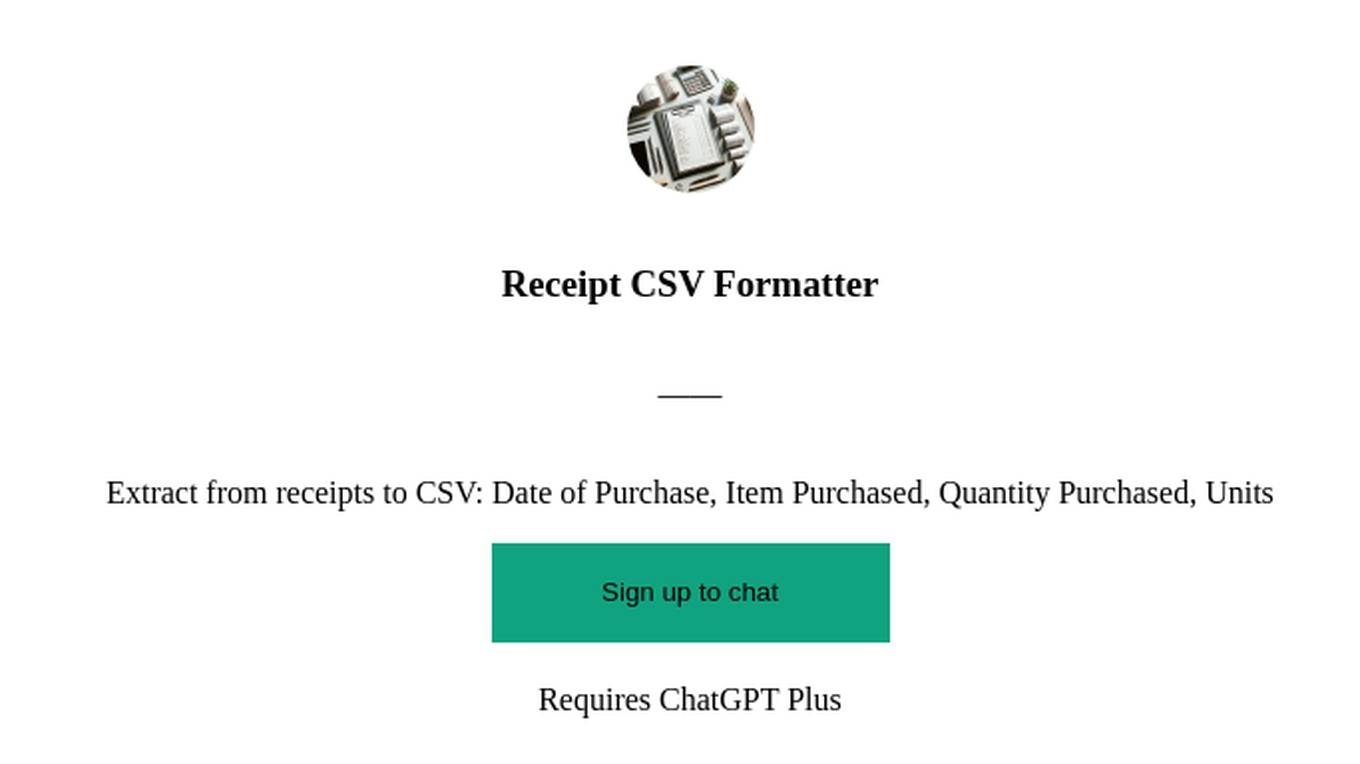
Receipt CSV Formatter
Extract from receipts to CSV: Date of Purchase, Item Purchased, Quantity Purchased, Units

awesome-generative-information-retrieval
This repository contains a curated list of resources on generative information retrieval, including research papers, datasets, tools, and applications. Generative information retrieval is a subfield of information retrieval that uses generative models to generate new documents or passages of text that are relevant to a given query. This can be useful for a variety of tasks, such as question answering, summarization, and document generation. The resources in this repository are intended to help researchers and practitioners stay up-to-date on the latest advances in generative information retrieval.
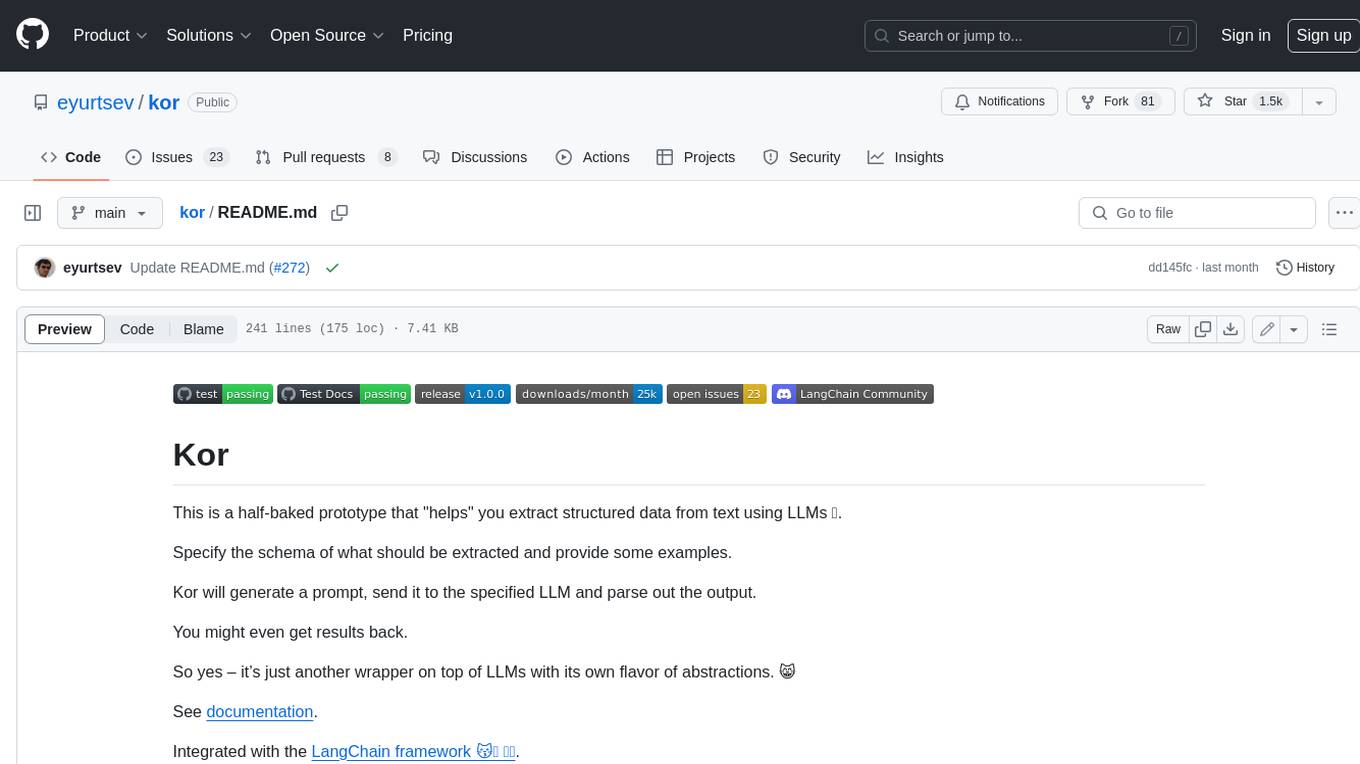
kor
Kor is a prototype tool designed to help users extract structured data from text using Language Models (LLMs). It generates prompts, sends them to specified LLMs, and parses the output. The tool works with the parsing approach and is integrated with the LangChain framework. Kor is compatible with pydantic v2 and v1, and schema is typed checked using pydantic. It is primarily used for extracting information from text based on provided reference examples and schema documentation. Kor is designed to work with all good-enough LLMs regardless of their support for function/tool calling or JSON modes.

ontogpt
OntoGPT is a Python package for extracting structured information from text using large language models, instruction prompts, and ontology-based grounding. It provides a command line interface and a minimal web app for easy usage. The tool has been evaluated on test data and is used in related projects like TALISMAN for gene set analysis. OntoGPT enables users to extract information from text by specifying relevant terms and provides the extracted objects as output.
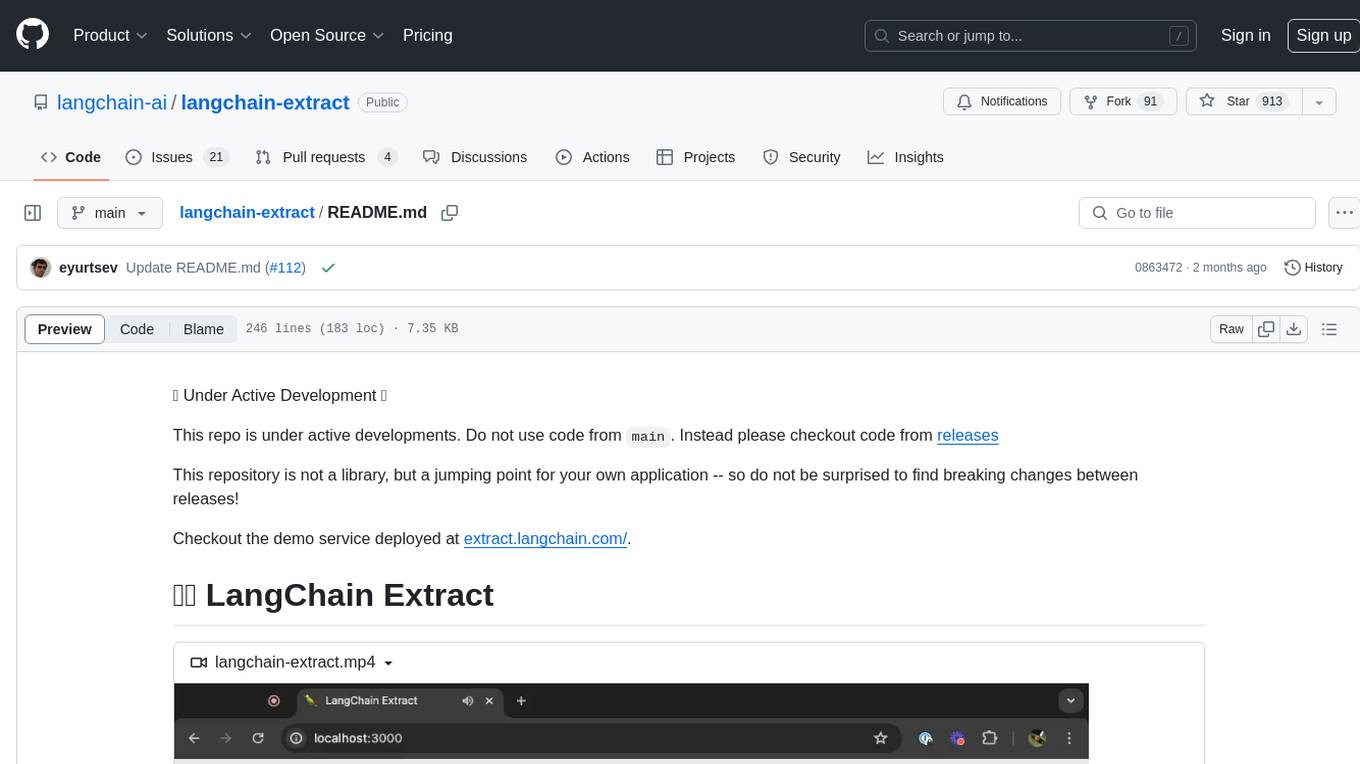
langchain-extract
LangChain Extract is a simple web server that allows you to extract information from text and files using LLMs. It is built using FastAPI, LangChain, and Postgresql. The backend closely follows the extraction use-case documentation and provides a reference implementation of an app that helps to do extraction over data using LLMs. This repository is meant to be a starting point for building your own extraction application which may have slightly different requirements or use cases.
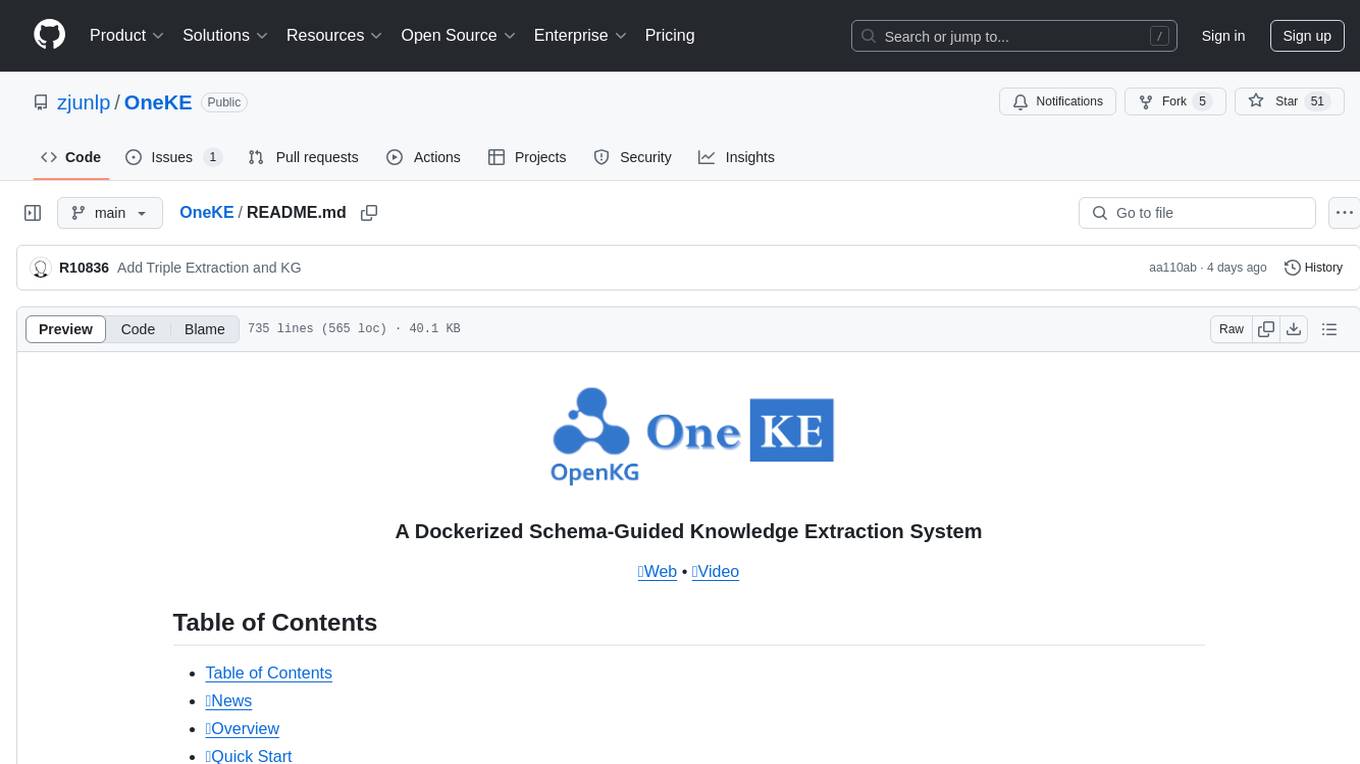
OneKE
OneKE is a flexible dockerized system for schema-guided knowledge extraction, capable of extracting information from the web and raw PDF books across multiple domains like science and news. It employs a collaborative multi-agent approach and includes a user-customizable knowledge base to enable tailored extraction. OneKE offers various IE tasks support, data sources support, LLMs support, extraction method support, and knowledge base configuration. Users can start with examples using YAML, Python, or Web UI, and perform tasks like Named Entity Recognition, Relation Extraction, Event Extraction, Triple Extraction, and Open Domain IE. The tool supports different source formats like Plain Text, HTML, PDF, Word, TXT, and JSON files. Users can choose from various extraction models like OpenAI, DeepSeek, LLaMA, Qwen, ChatGLM, MiniCPM, and OneKE for information extraction tasks. Extraction methods include Schema Agent, Extraction Agent, and Reflection Agent. The tool also provides support for schema repository and case repository management, along with solutions for network issues. Contributors to the project include Ningyu Zhang, Haofen Wang, Yujie Luo, Xiangyuan Ru, Kangwei Liu, Lin Yuan, Mengshu Sun, Lei Liang, Zhiqiang Zhang, Jun Zhou, Lanning Wei, Da Zheng, and Huajun Chen.
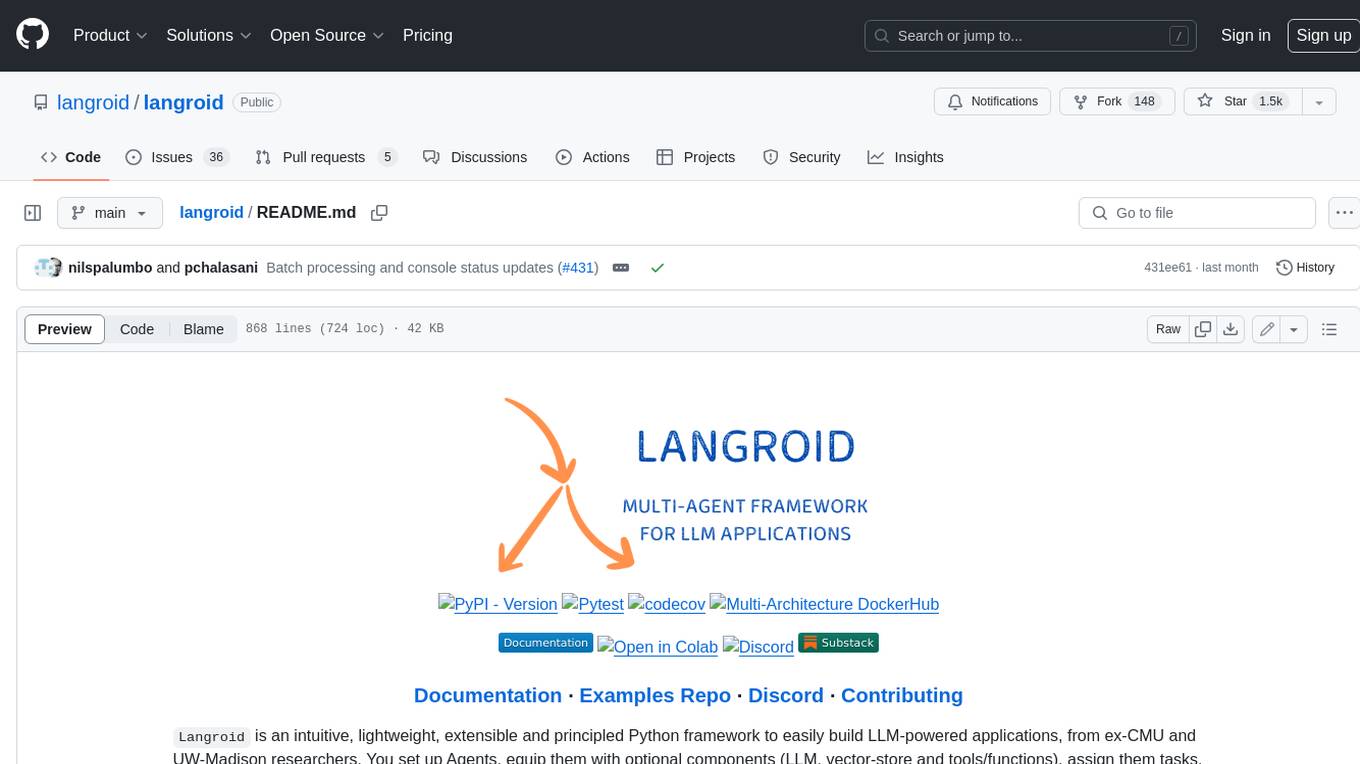
langroid
Langroid is a Python framework that makes it easy to build LLM-powered applications. It uses a multi-agent paradigm inspired by the Actor Framework, where you set up Agents, equip them with optional components (LLM, vector-store and tools/functions), assign them tasks, and have them collaboratively solve a problem by exchanging messages. Langroid is a fresh take on LLM app-development, where considerable thought has gone into simplifying the developer experience; it does not use Langchain.
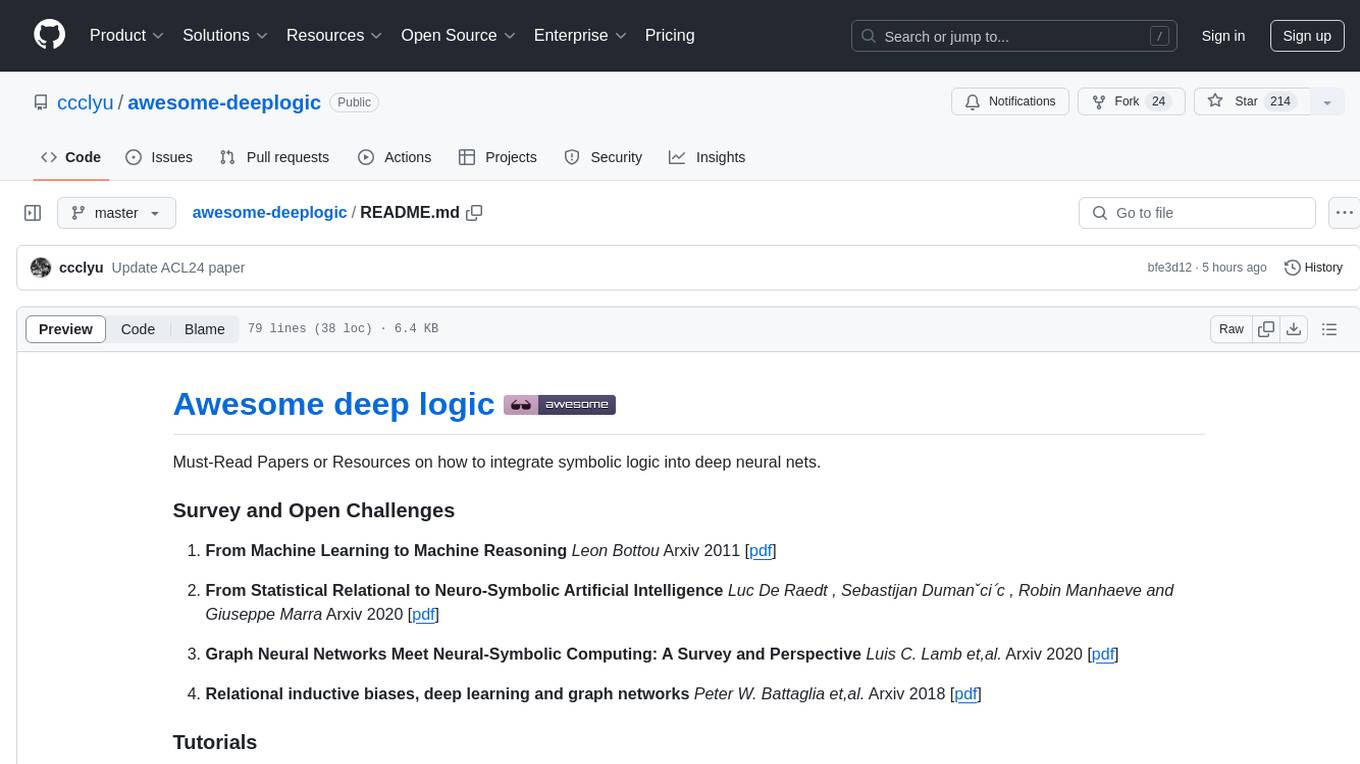
awesome-deeplogic
Awesome deep logic is a curated list of papers and resources focusing on integrating symbolic logic into deep neural networks. It includes surveys, tutorials, and research papers that explore the intersection of logic and deep learning. The repository aims to provide valuable insights and knowledge on how logic can be used to enhance reasoning, knowledge regularization, weak supervision, and explainability in neural networks.
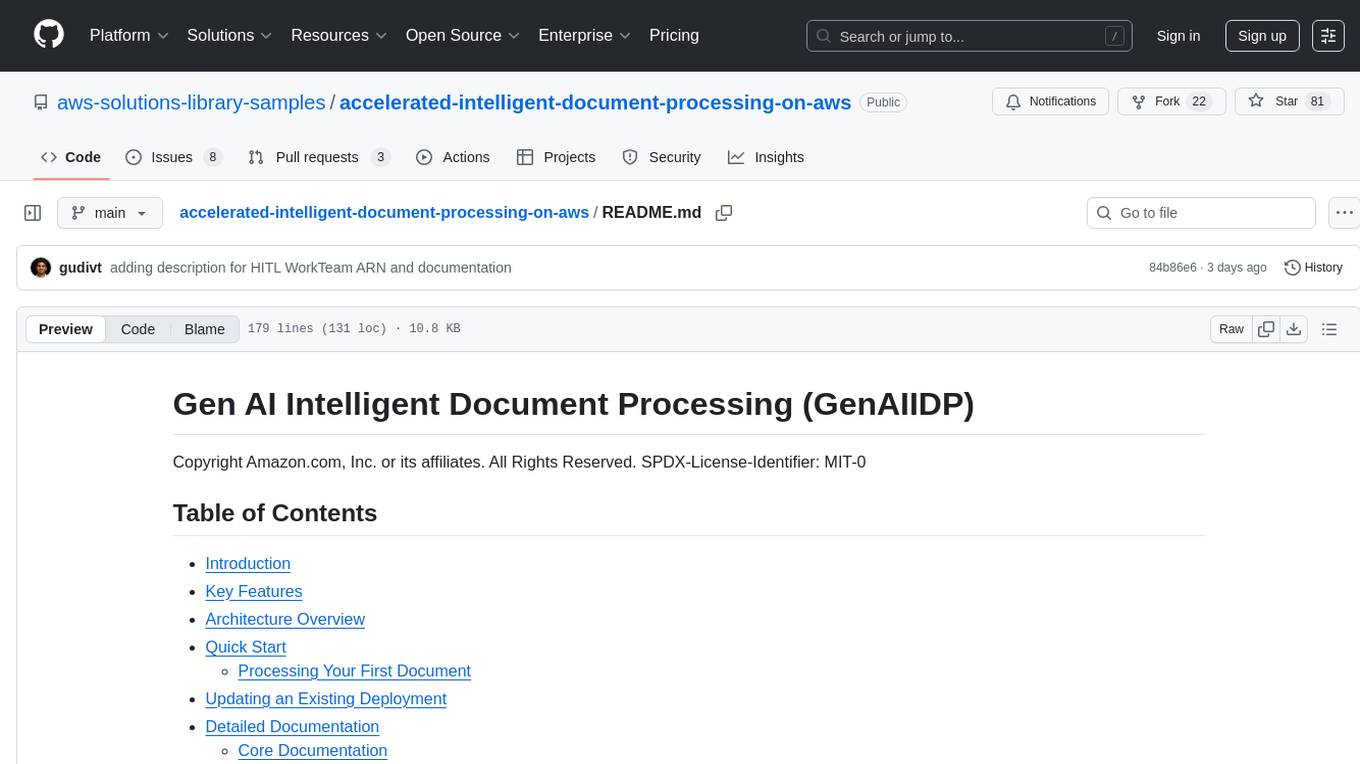
accelerated-intelligent-document-processing-on-aws
Accelerated Intelligent Document Processing on AWS is a scalable, serverless solution for automated document processing and information extraction using AWS services. It combines OCR capabilities with generative AI to convert unstructured documents into structured data at scale. The solution features a serverless architecture built on AWS technologies, modular processing patterns, advanced classification support, few-shot example support, custom business logic integration, high throughput processing, built-in resilience, cost optimization, comprehensive monitoring, web user interface, human-in-the-loop integration, AI-powered evaluation, extraction confidence assessment, and document knowledge base query. The architecture uses nested CloudFormation stacks to support multiple document processing patterns while maintaining common infrastructure for queueing, tracking, and monitoring.
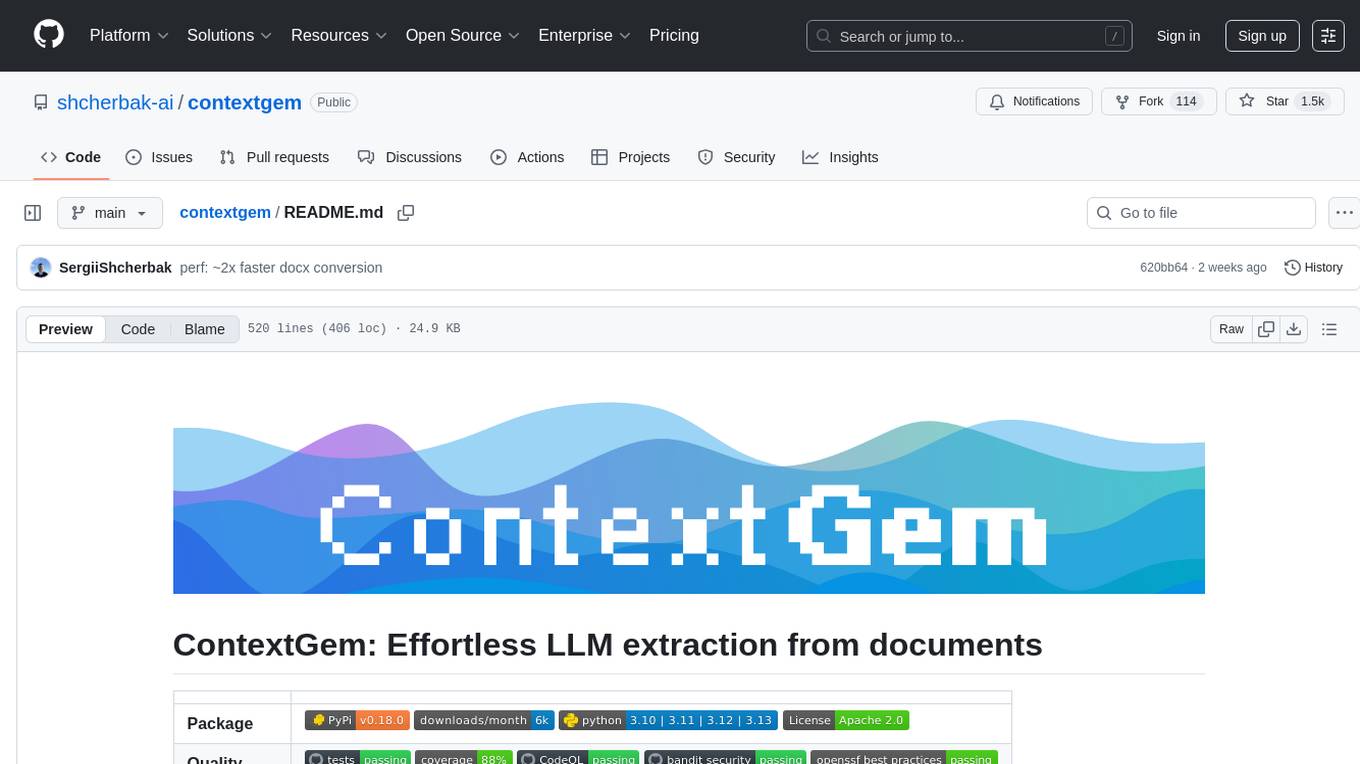
contextgem
Contextgem is a Ruby gem that provides a simple way to manage context-specific configurations in your Ruby applications. It allows you to define different configurations based on the context in which your application is running, such as development, testing, or production. This helps you keep your configuration settings organized and easily accessible, making it easier to maintain and update your application. With Contextgem, you can easily switch between different configurations without having to modify your code, making it a valuable tool for managing complex applications with multiple environments.

nlp-llms-resources
The 'nlp-llms-resources' repository is a comprehensive resource list for Natural Language Processing (NLP) and Large Language Models (LLMs). It covers a wide range of topics including traditional NLP datasets, data acquisition, libraries for NLP, neural networks, sentiment analysis, optical character recognition, information extraction, semantics, topic modeling, multilingual NLP, domain-specific LLMs, vector databases, ethics, costing, books, courses, surveys, aggregators, newsletters, papers, conferences, and societies. The repository provides valuable information and resources for individuals interested in NLP and LLMs.
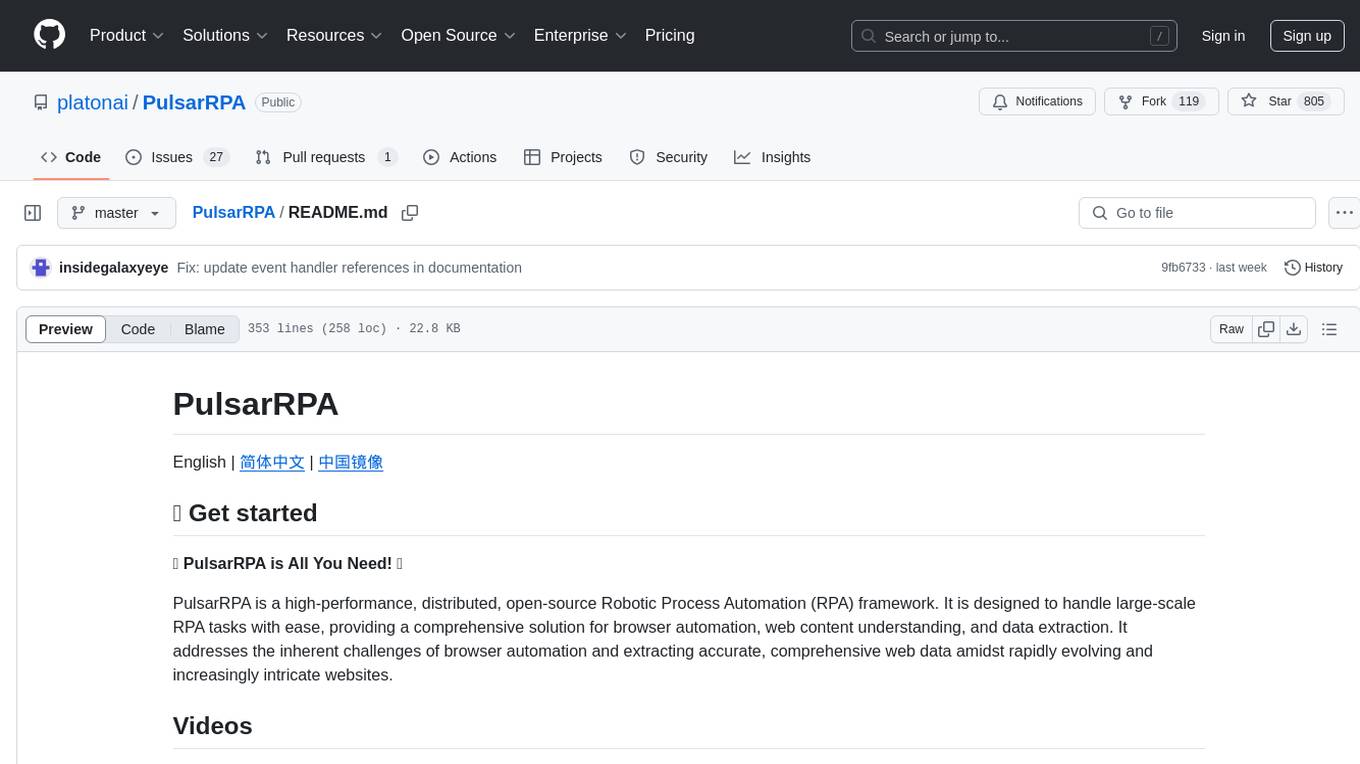
PulsarRPA
PulsarRPA is a high-performance, distributed, open-source Robotic Process Automation (RPA) framework designed to handle large-scale RPA tasks with ease. It provides a comprehensive solution for browser automation, web content understanding, and data extraction. PulsarRPA addresses challenges of browser automation and accurate web data extraction from complex and evolving websites. It incorporates innovative technologies like browser rendering, RPA, intelligent scraping, advanced DOM parsing, and distributed architecture to ensure efficient, accurate, and scalable web data extraction. The tool is open-source, customizable, and supports cutting-edge information extraction technology, making it a preferred solution for large-scale web data extraction.
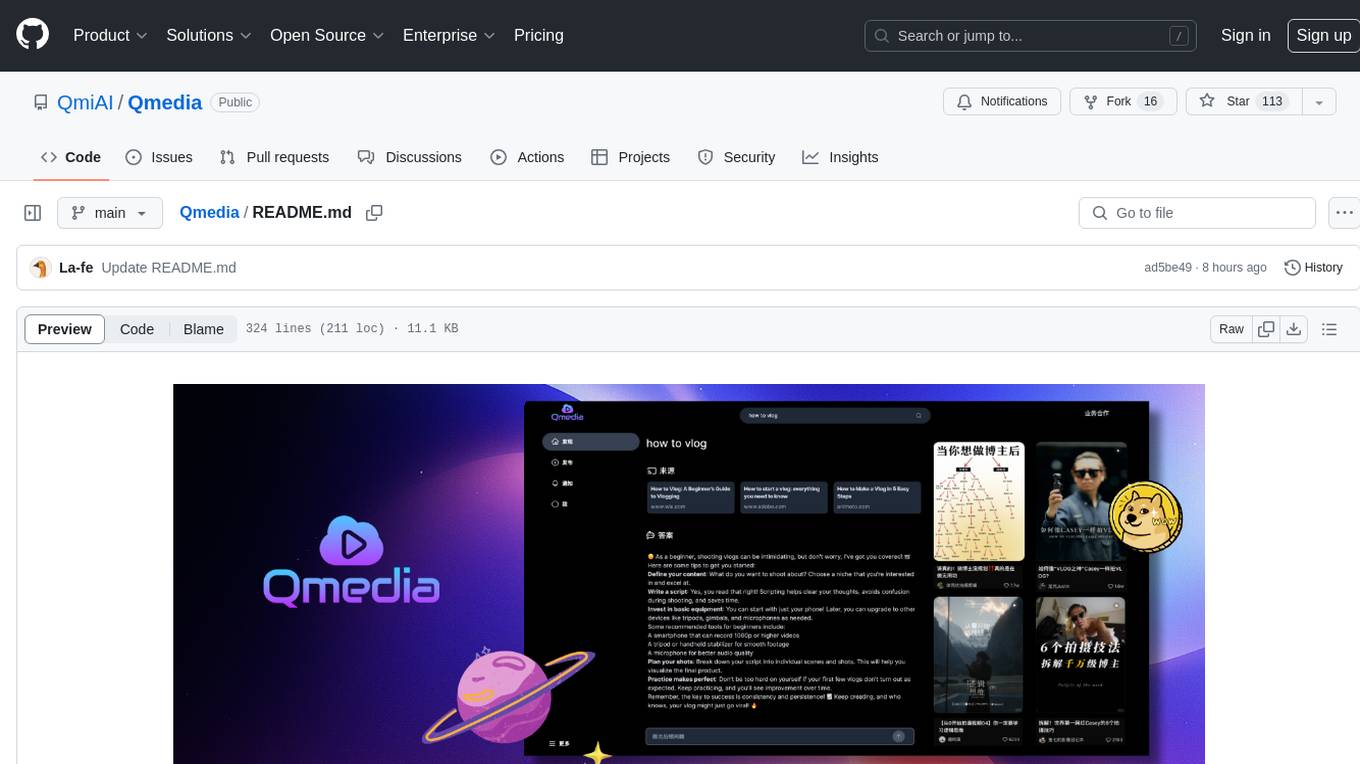
Qmedia
QMedia is an open-source multimedia AI content search engine designed specifically for content creators. It provides rich information extraction methods for text, image, and short video content. The tool integrates unstructured text, image, and short video information to build a multimodal RAG content Q&A system. Users can efficiently search for image/text and short video materials, analyze content, provide content sources, and generate customized search results based on user interests and needs. QMedia supports local deployment for offline content search and Q&A for private data. The tool offers features like content cards display, multimodal content RAG search, and pure local multimodal models deployment. Users can deploy different types of models locally, manage language models, feature embedding models, image models, and video models. QMedia aims to spark new ideas for content creation and share AI content creation concepts in an open-source manner.
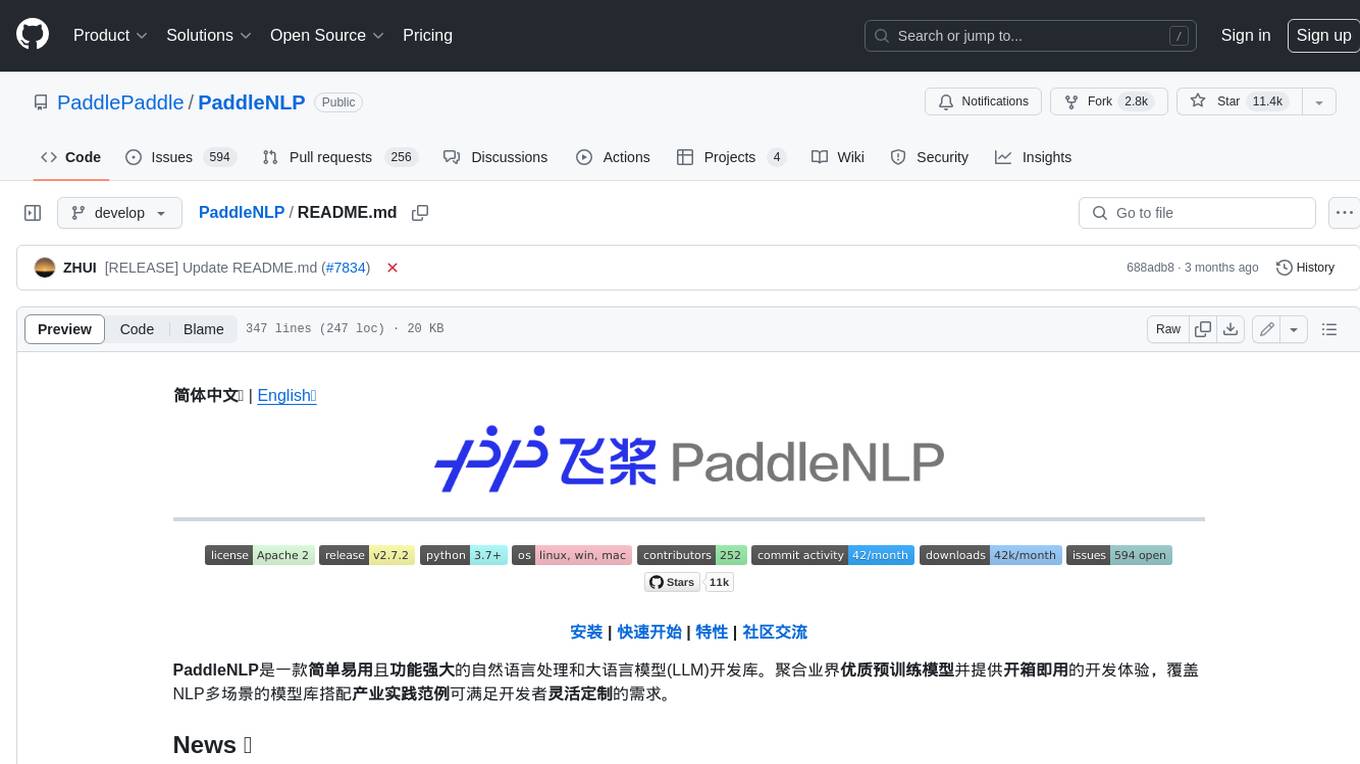
PaddleNLP
PaddleNLP is an easy-to-use and high-performance NLP library. It aggregates high-quality pre-trained models in the industry and provides out-of-the-box development experience, covering a model library for multiple NLP scenarios with industry practice examples to meet developers' flexible customization needs.
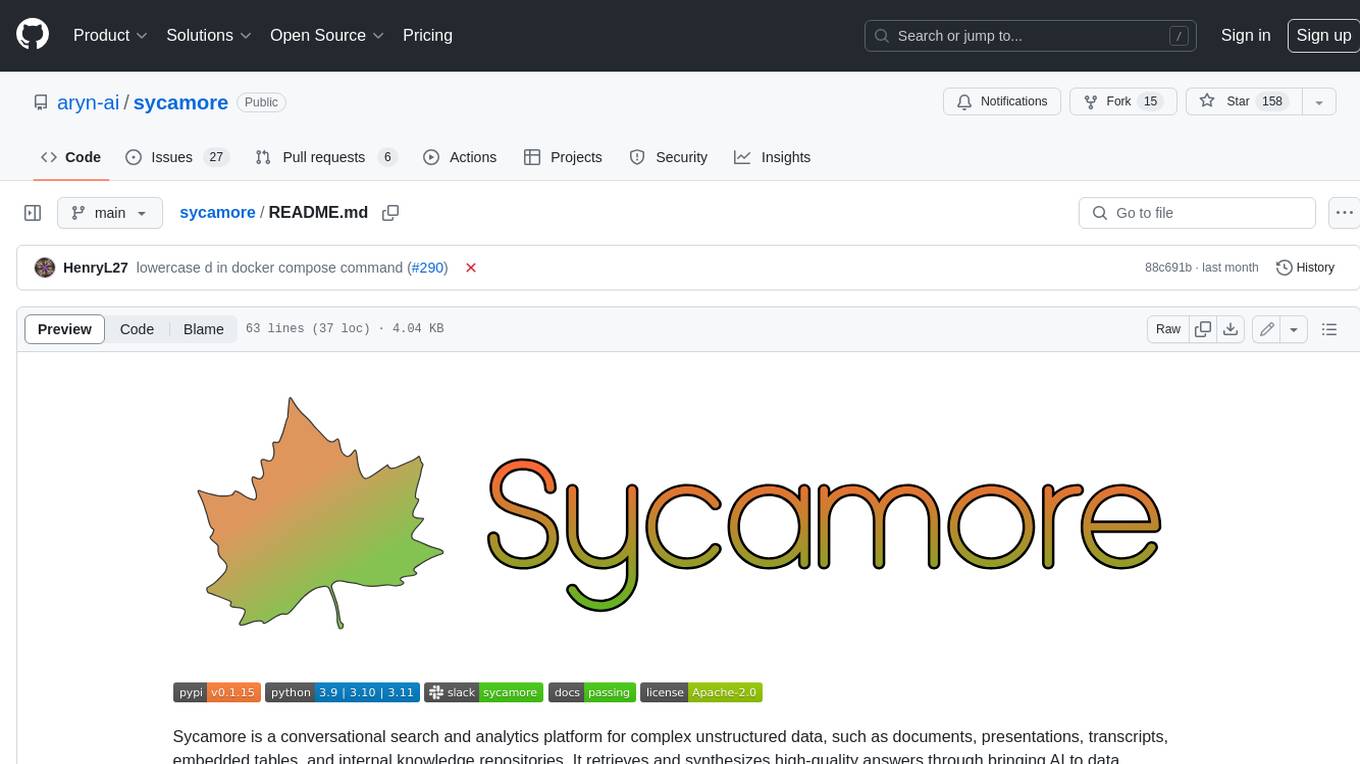
sycamore
Sycamore is a conversational search and analytics platform for complex unstructured data, such as documents, presentations, transcripts, embedded tables, and internal knowledge repositories. It retrieves and synthesizes high-quality answers through bringing AI to data preparation, indexing, and retrieval. Sycamore makes it easy to prepare unstructured data for search and analytics, providing a toolkit for data cleaning, information extraction, enrichment, summarization, and generation of vector embeddings that encapsulate the semantics of data. Sycamore uses your choice of generative AI models to make these operations simple and effective, and it enables quick experimentation and iteration. Additionally, Sycamore uses OpenSearch for indexing, enabling hybrid (vector + keyword) search, retrieval-augmented generation (RAG) pipelining, filtering, analytical functions, conversational memory, and other features to improve information retrieval.
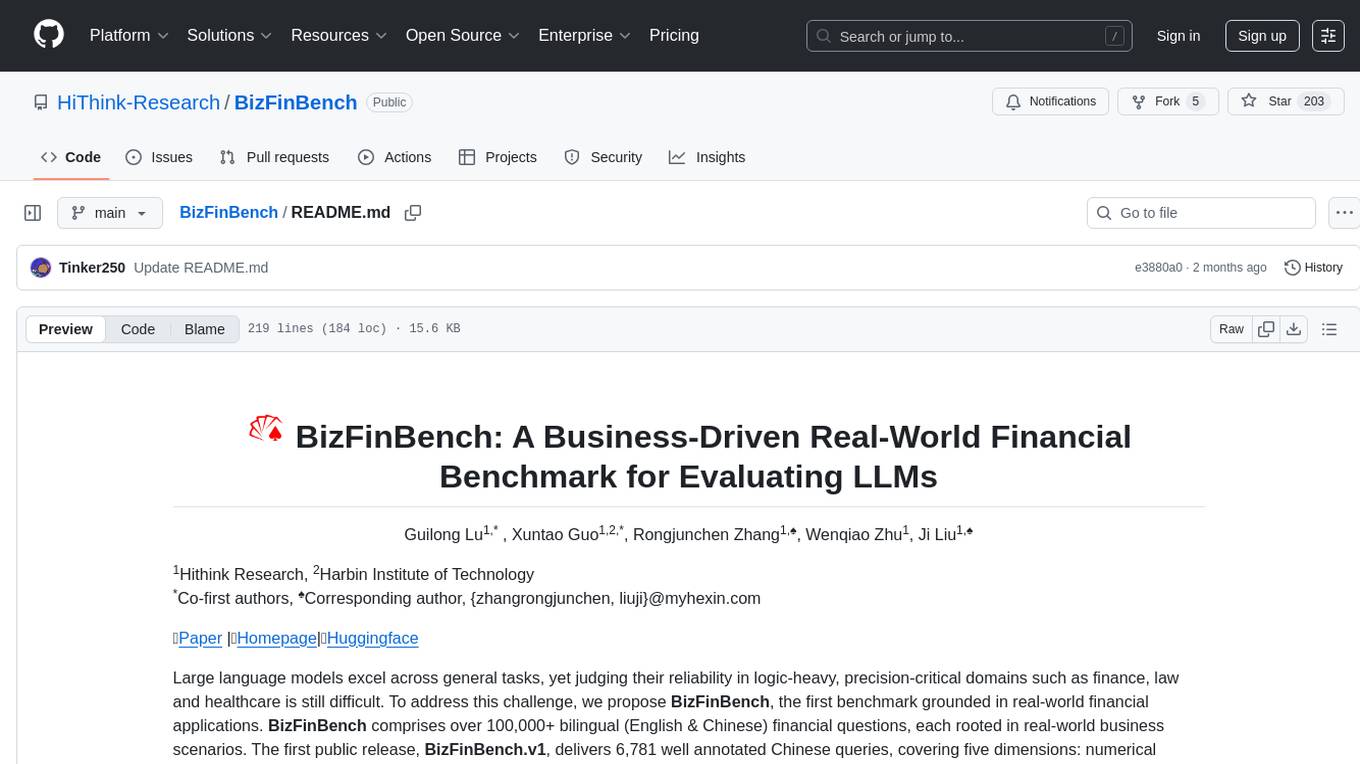
BizFinBench
BizFinBench is a benchmark tool designed for evaluating large language models (LLMs) in logic-heavy and precision-critical domains such as finance. It comprises over 100,000 bilingual financial questions rooted in real-world business scenarios. The tool covers five dimensions: numerical calculation, reasoning, information extraction, prediction recognition, and knowledge-based question answering, mapped to nine fine-grained categories. BizFinBench aims to assess the capacity of LLMs in real-world financial scenarios and provides insights into their strengths and limitations.
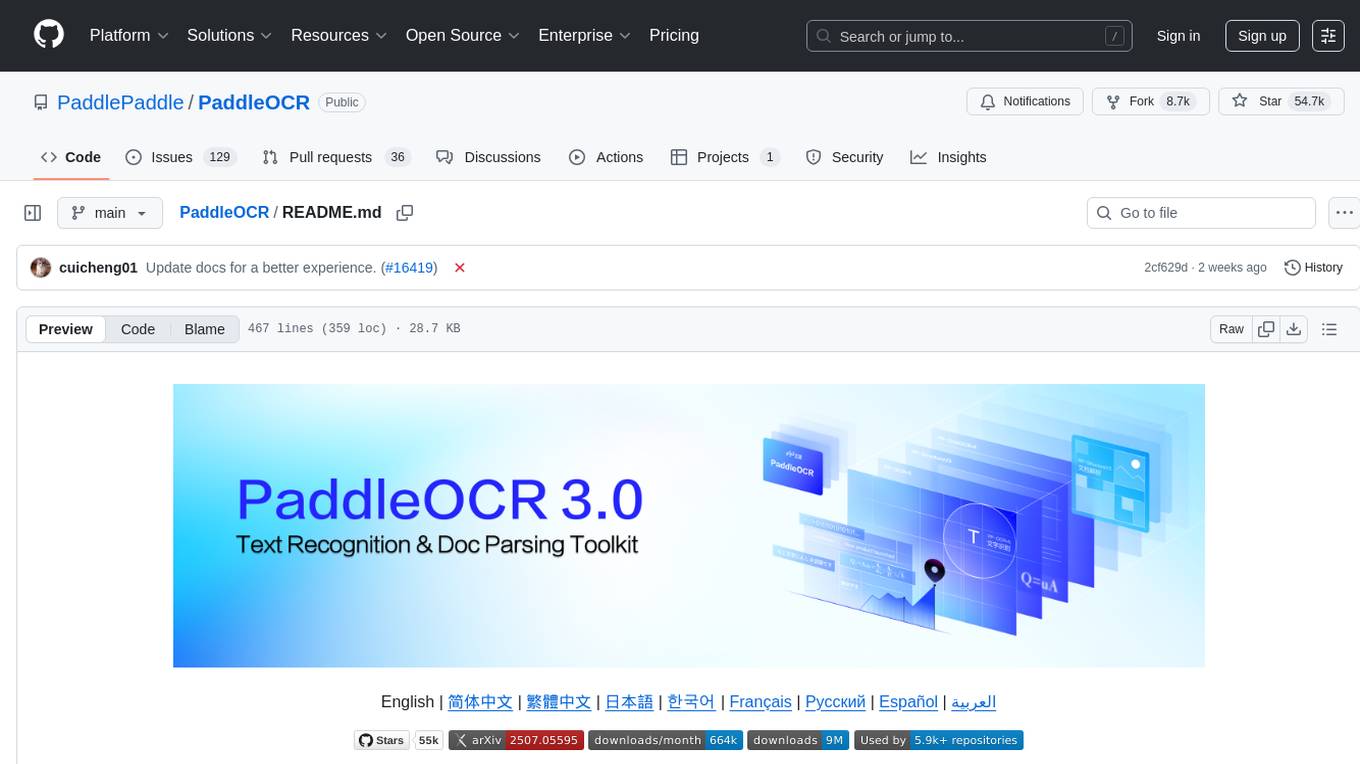
PaddleOCR
PaddleOCR is an easy-to-use and scalable OCR toolkit based on PaddlePaddle. It provides a series of text detection and recognition models, supporting multiple languages and various scenarios. With PaddleOCR, users can perform accurate and efficient text extraction from images and videos, making it suitable for tasks such as document scanning, text recognition, and information extraction.
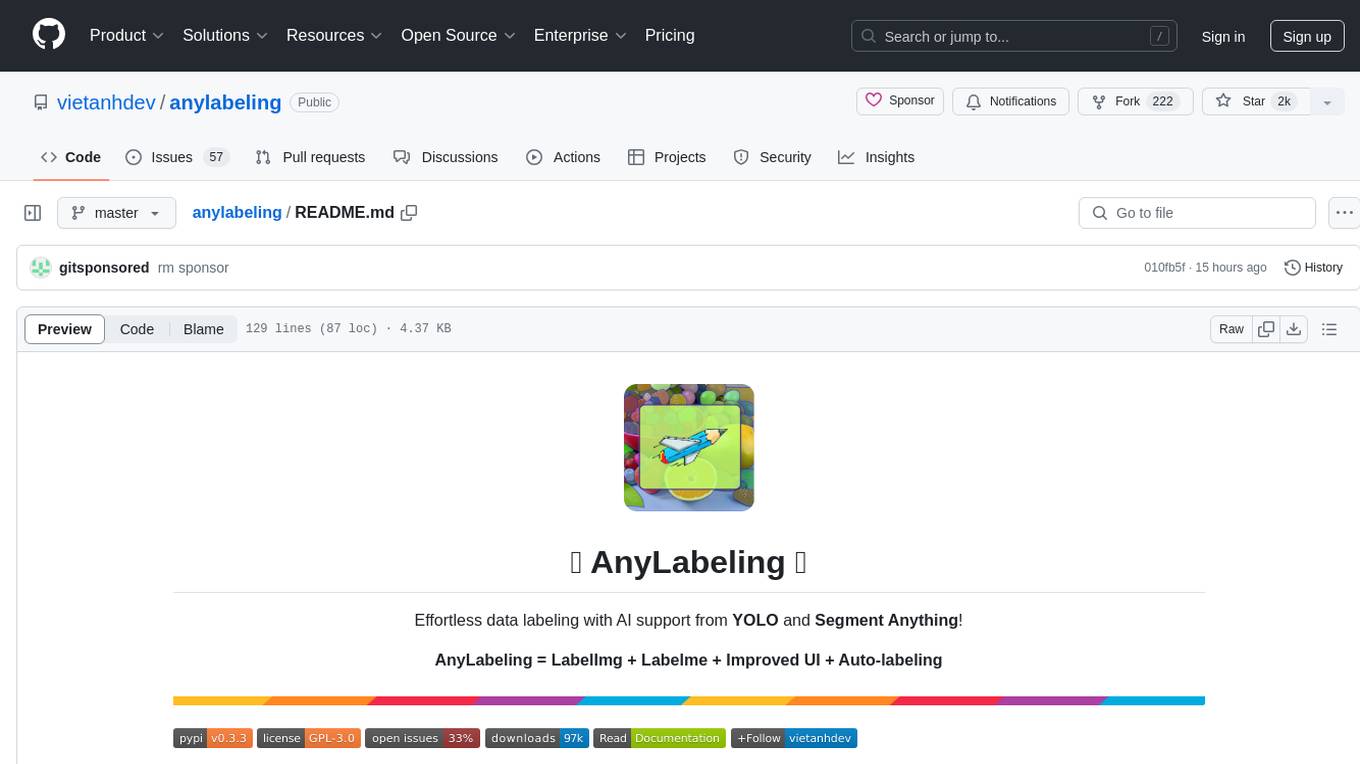
anylabeling
AnyLabeling is a tool for effortless data labeling with AI support from YOLO and Segment Anything. It combines features from LabelImg and Labelme with an improved UI and auto-labeling capabilities. Users can annotate images with polygons, rectangles, circles, lines, and points, as well as perform auto-labeling using YOLOv5 and Segment Anything. The tool also supports text detection, recognition, and Key Information Extraction (KIE) labeling, with multiple language options available such as English, Vietnamese, and Chinese.
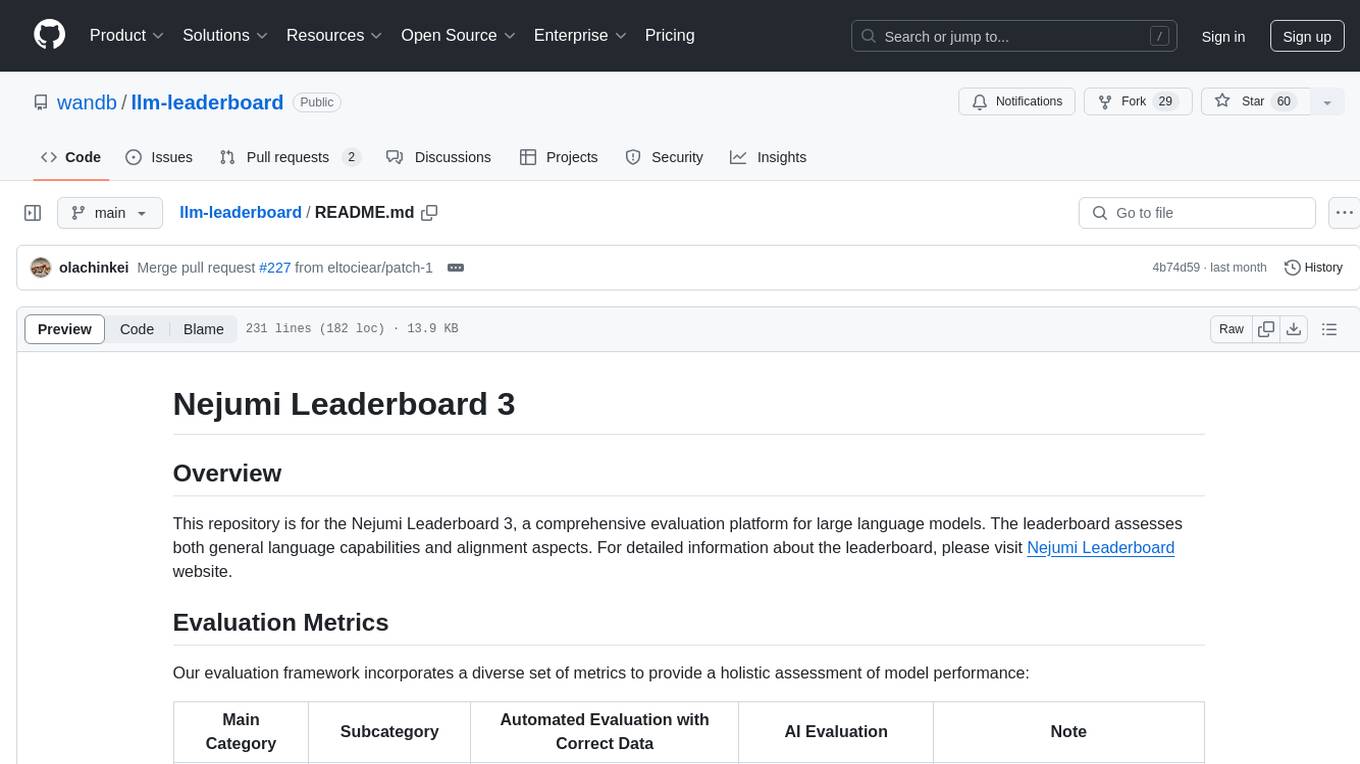
llm-leaderboard
Nejumi Leaderboard 3 is a comprehensive evaluation platform for large language models, assessing general language capabilities and alignment aspects. The evaluation framework includes metrics for language processing, translation, summarization, information extraction, reasoning, mathematical reasoning, entity extraction, knowledge/question answering, English, semantic analysis, syntactic analysis, alignment, ethics/moral, toxicity, bias, truthfulness, and robustness. The repository provides an implementation guide for environment setup, dataset preparation, configuration, model configurations, and chat template creation. Users can run evaluation processes using specified configuration files and log results to the Weights & Biases project.
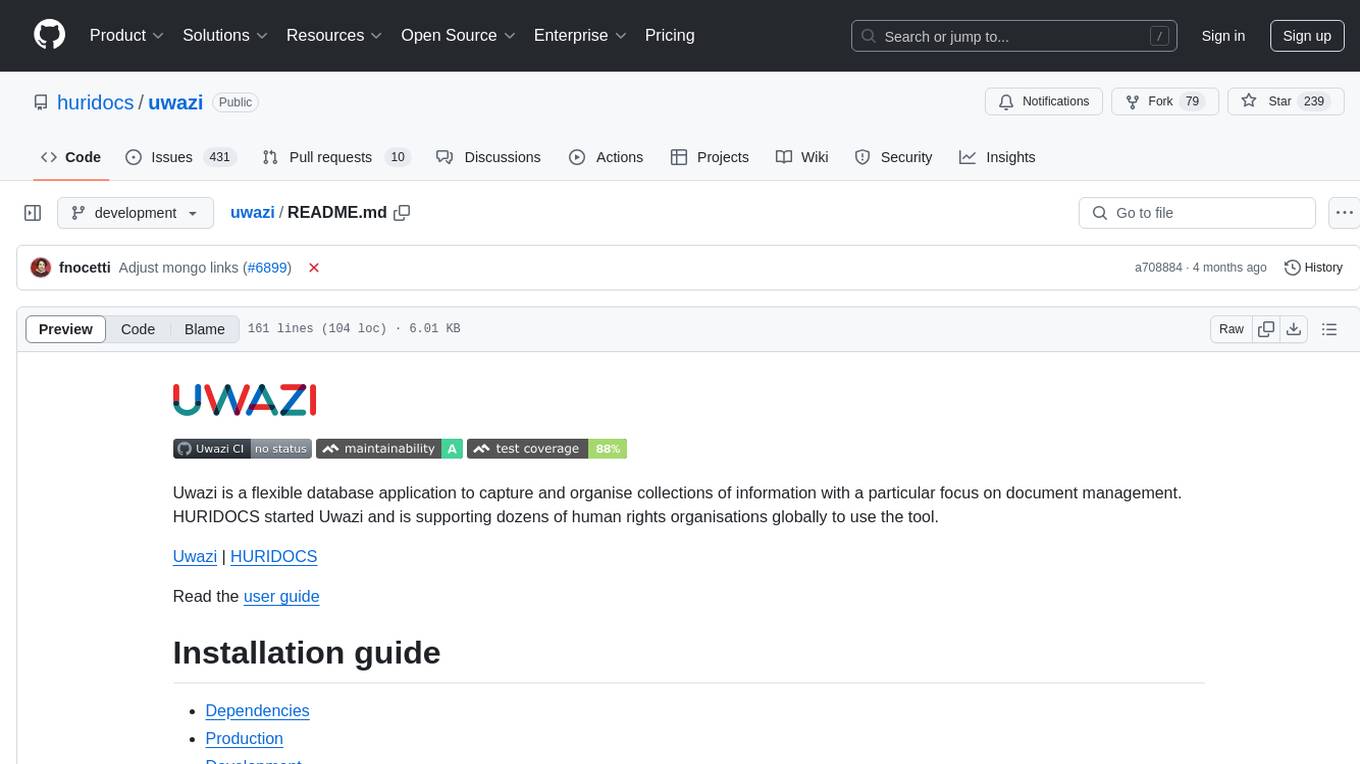
uwazi
Uwazi is a flexible database application designed for capturing and organizing collections of information, with a focus on document management. It is developed and supported by HURIDOCS, benefiting human rights organizations globally. The tool requires NodeJs, ElasticSearch, ICU Analysis Plugin, MongoDB, Yarn, and pdftotext for installation. It offers production and development installation guides, including Docker setup. Uwazi supports hot reloading, unit and integration testing with JEST, and end-to-end testing with Nightmare or Puppeteer. The system requirements include RAM, CPU, and disk space recommendations for on-premises and development usage.
